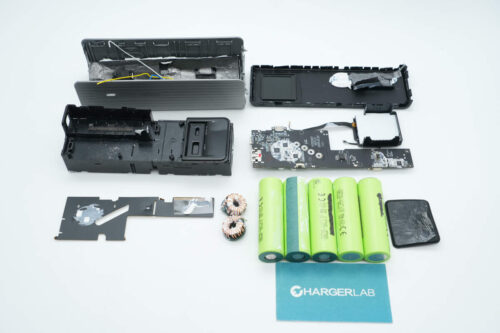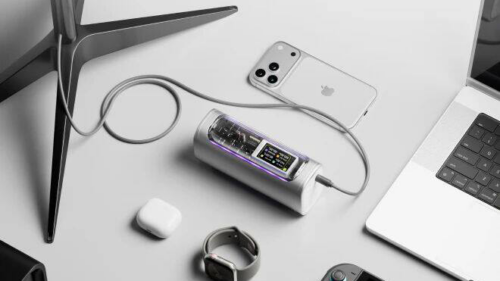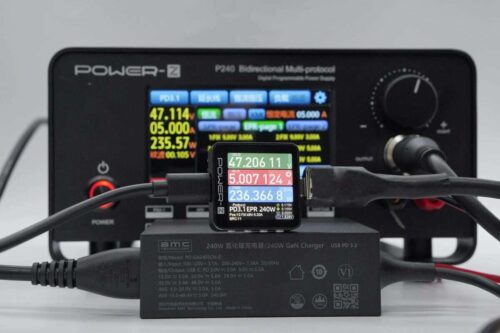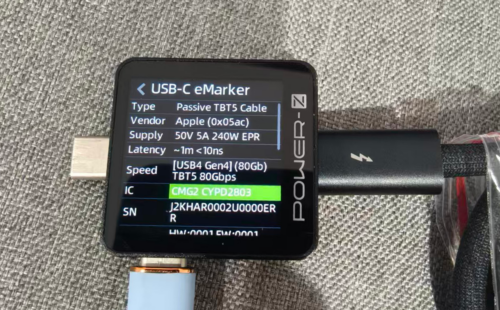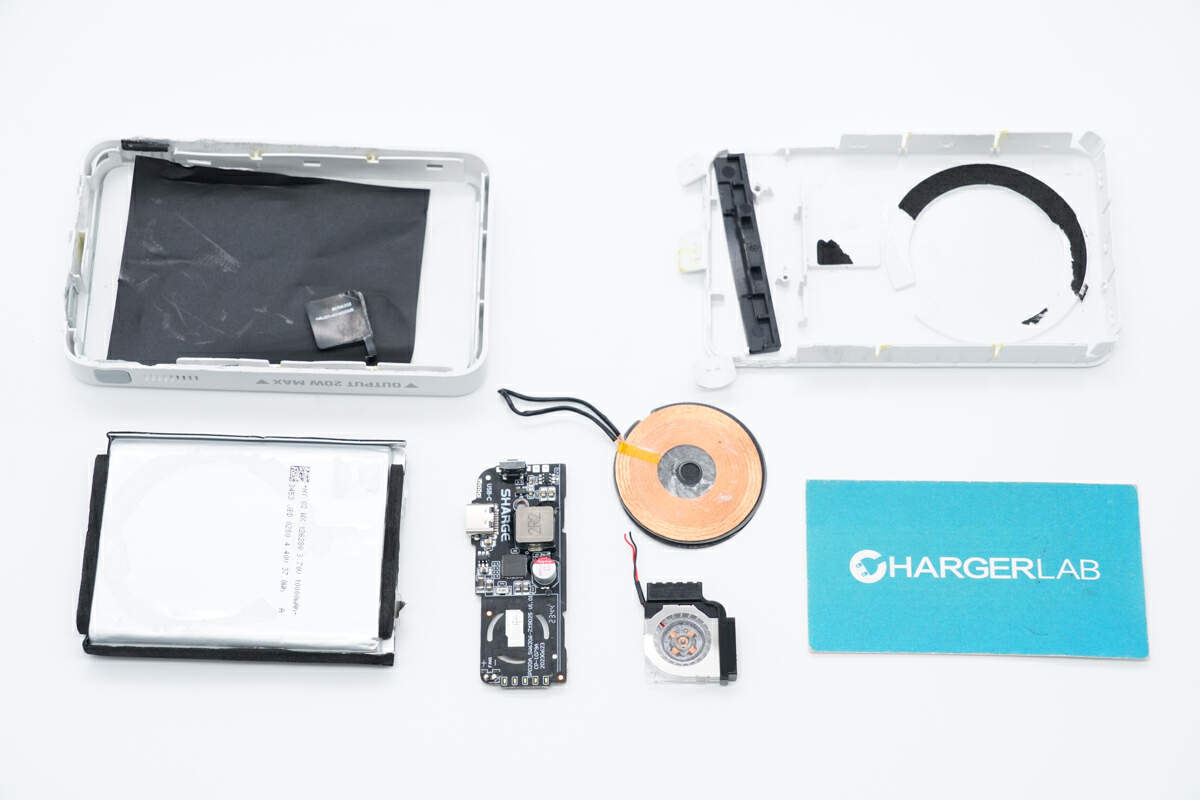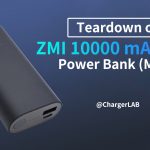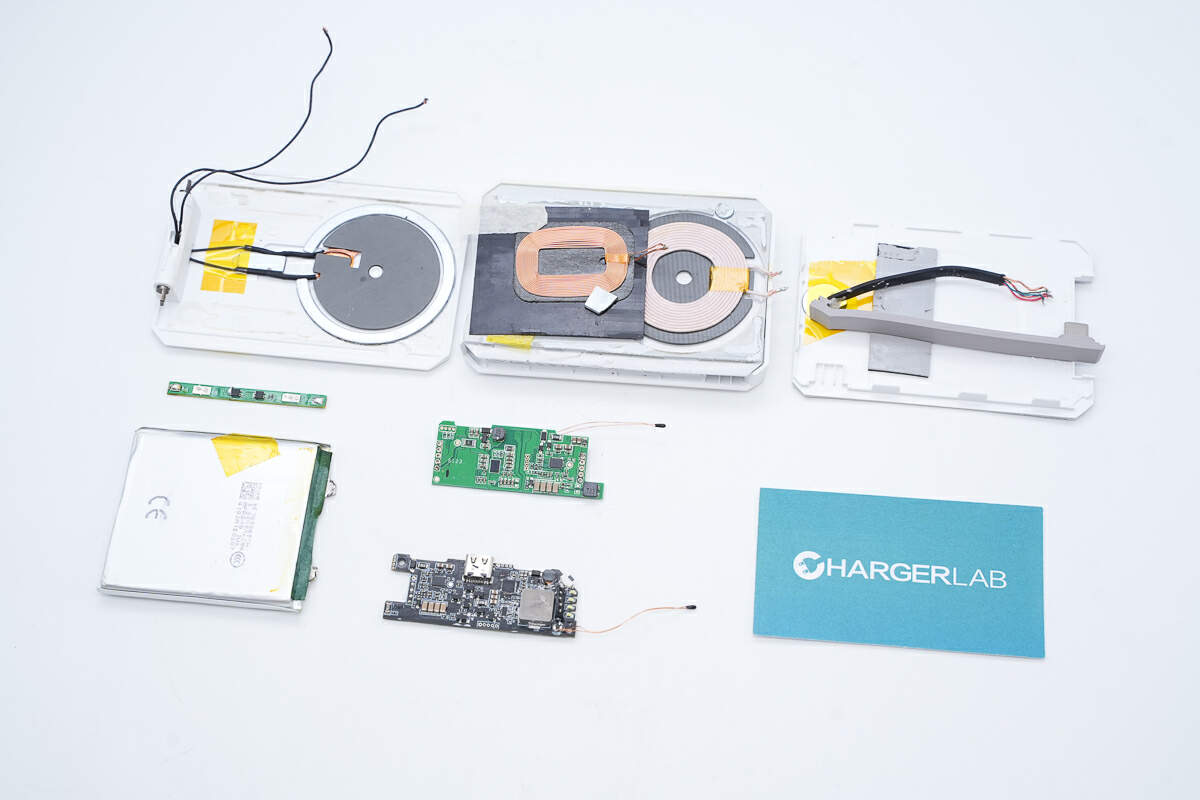Introduction
This issue features a teardown of the EcoFlow 170W Power Bank. Unlike the version with two built-in cables, this model is equipped with two USB-C ports and one USB-A port. Both USB-C ports support PD3.1 140W bi-directional fast charging. It also features a 16-bit color depth TFT display and a 25,000mAh battery pack. Let's take a closer look at the internal design of this power bank.
Product Appearance
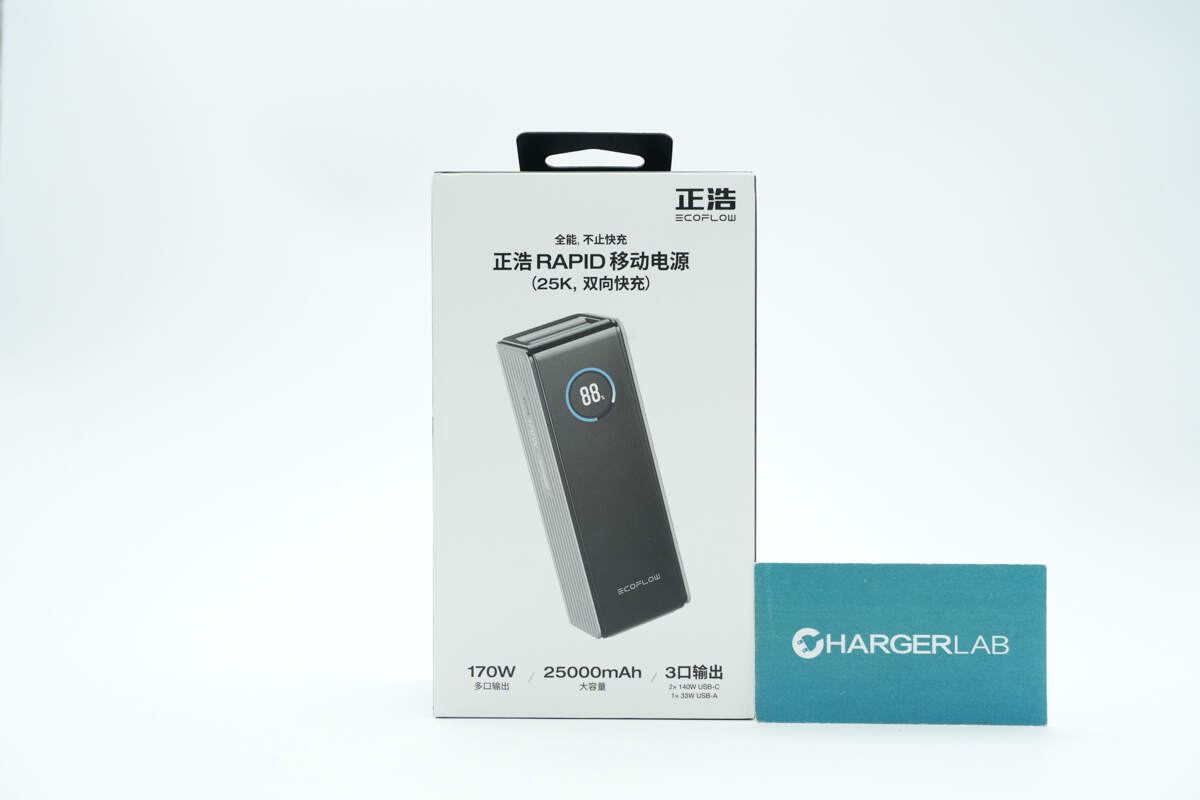
The front of the packaging displays the EcoFlow logo, product name, an image of the device, and key selling points.
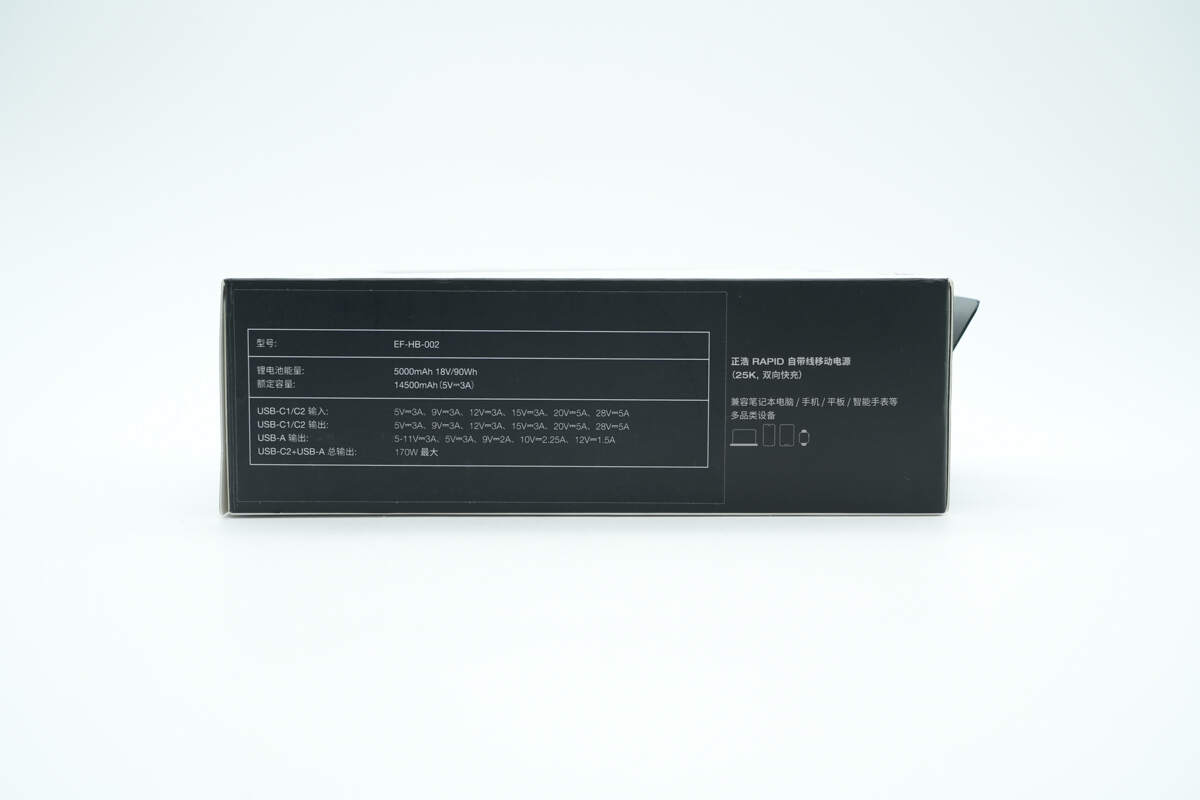
The side features specifications information.
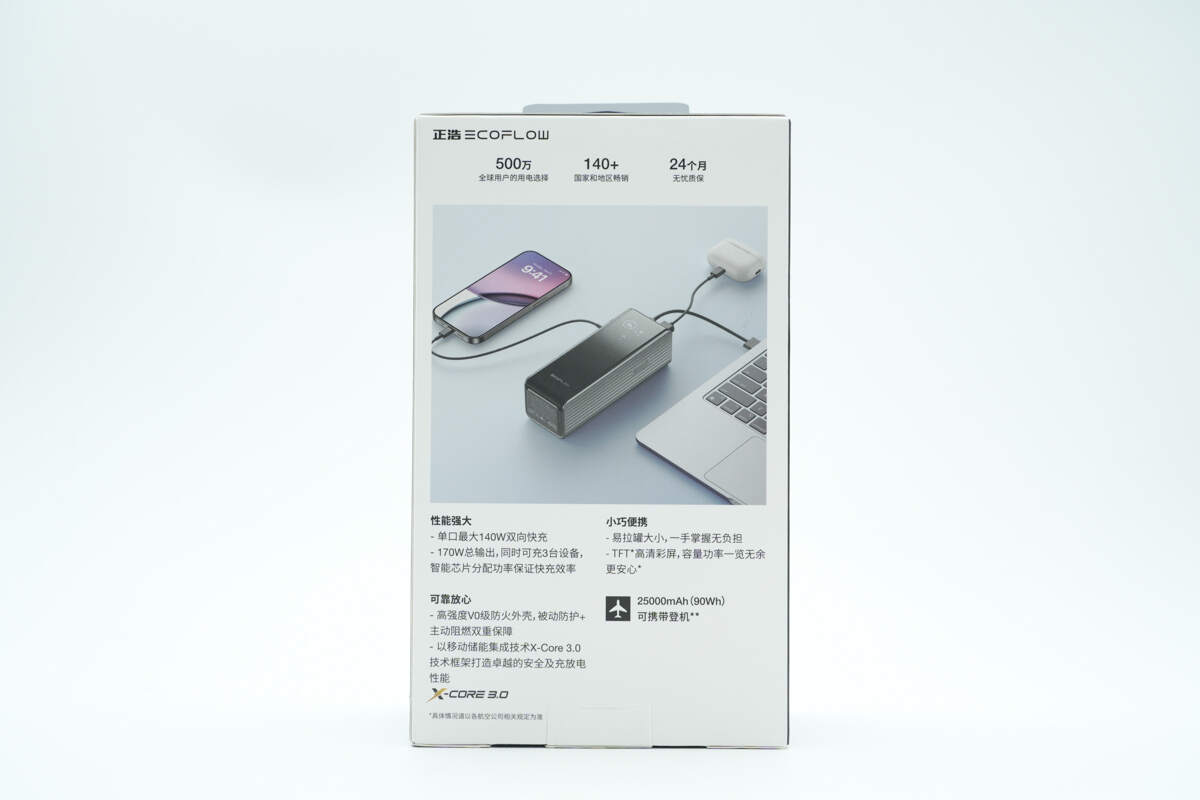
The back showcases usage scenarios and selling points.
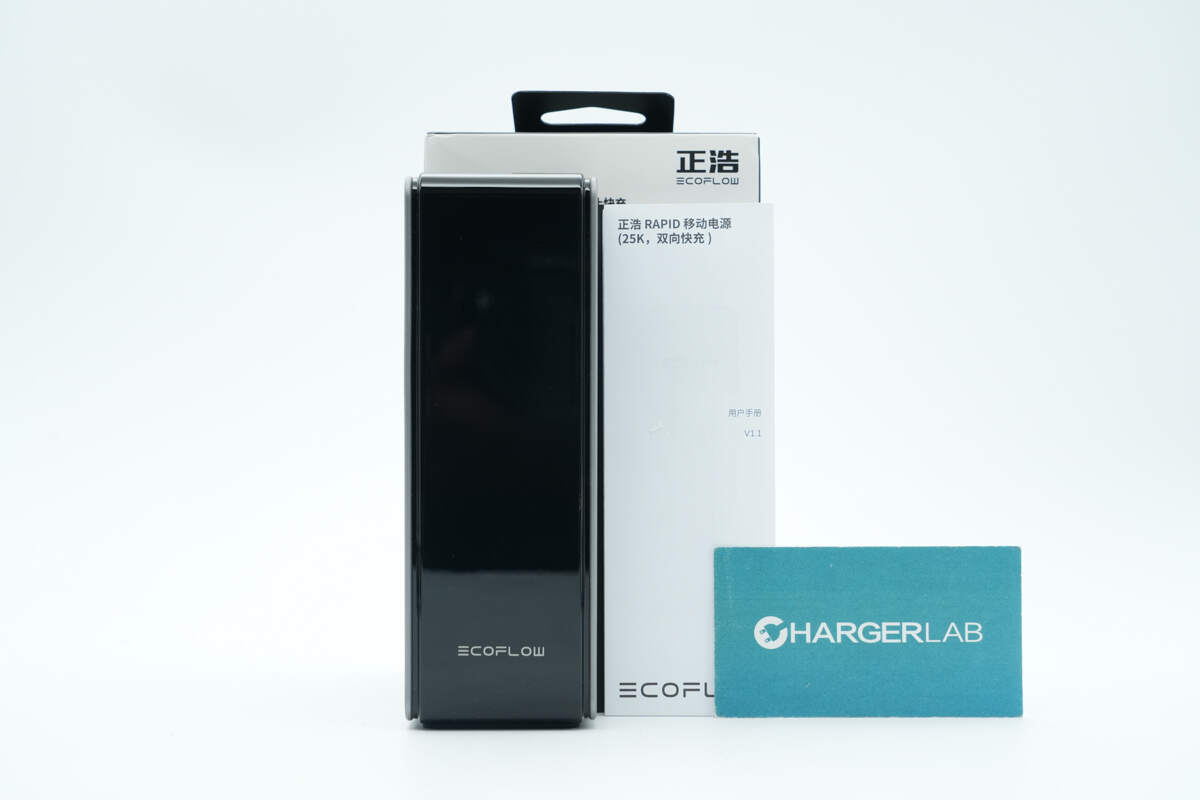
The package includes the power bank and a user manual.
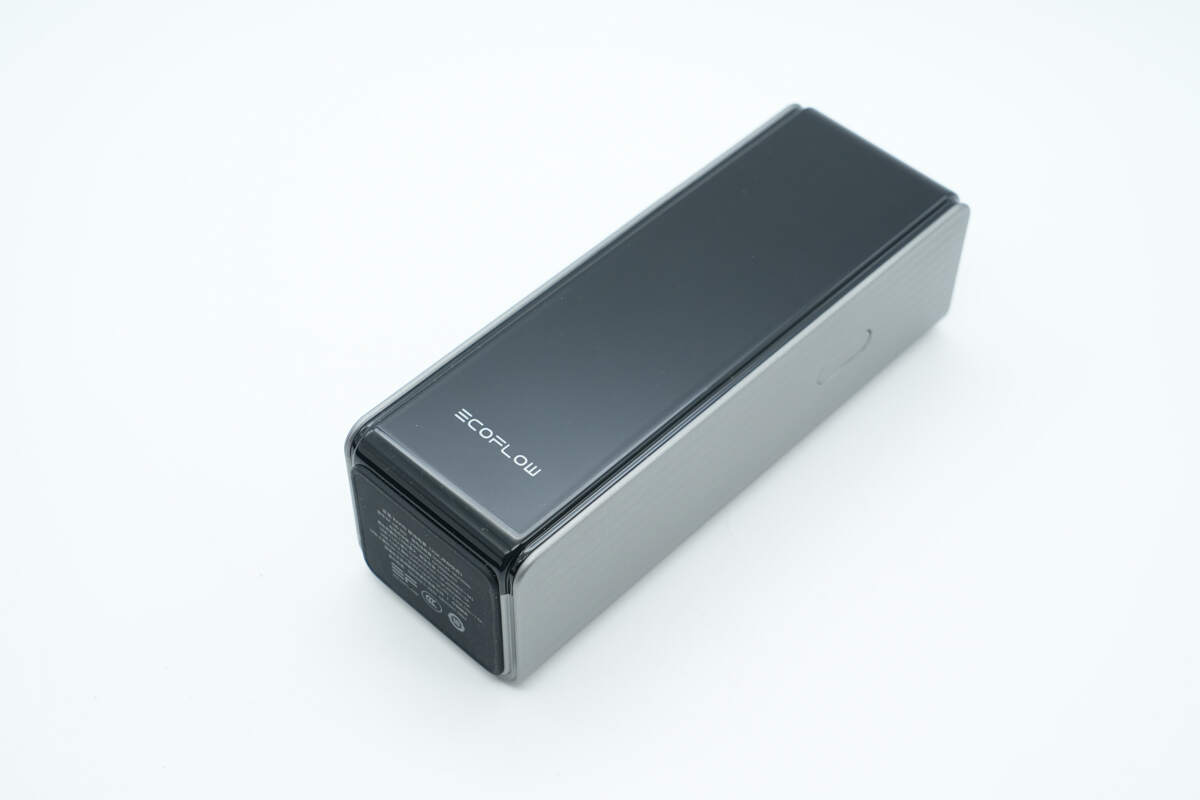
It adopts the same design language as the version with two built-in cables.
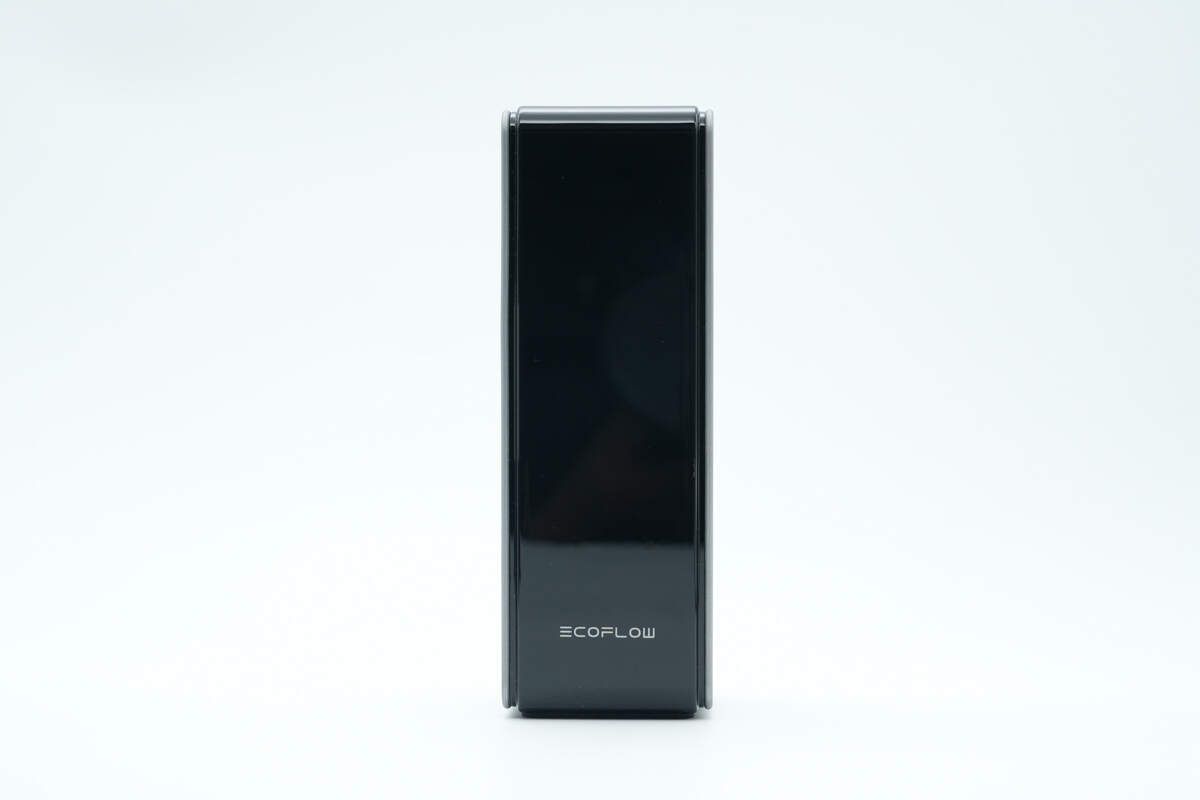
The front features an obsidian glass-textured panel that shimmers subtly depending on the angle of the light.
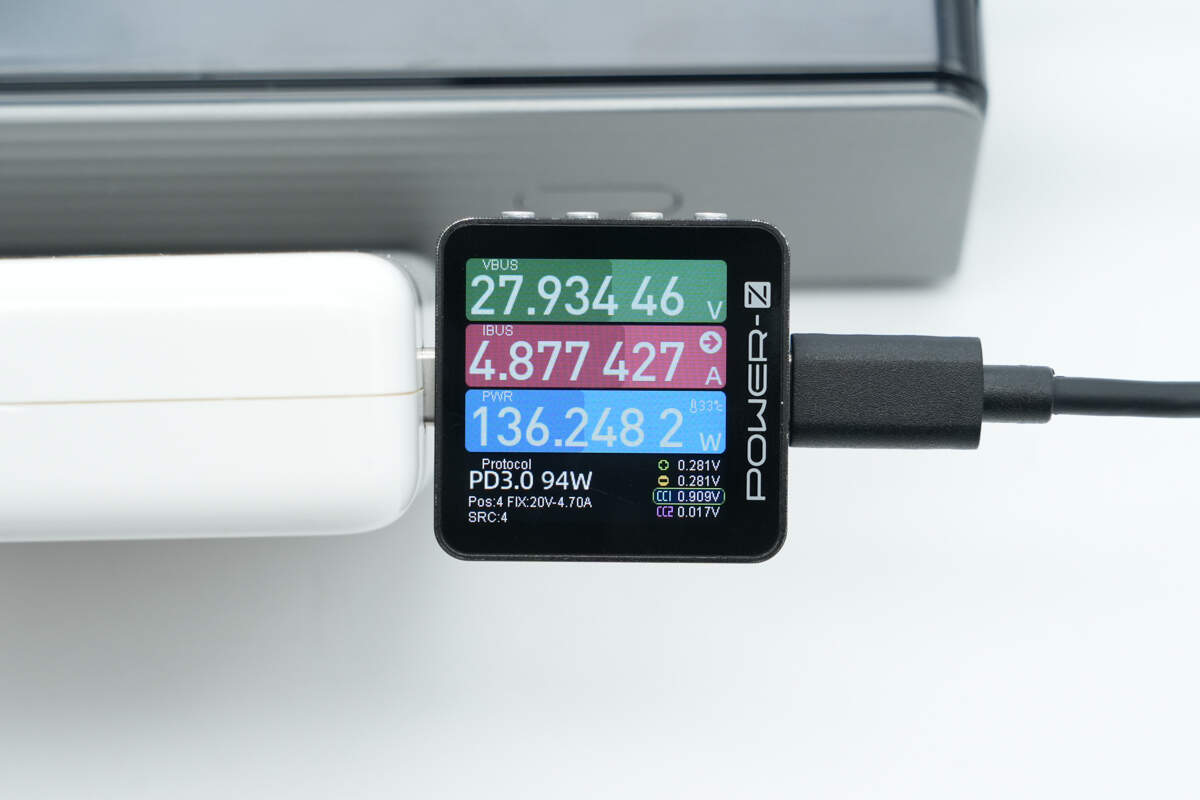
The full-color smart display supports dynamic emoji animations.
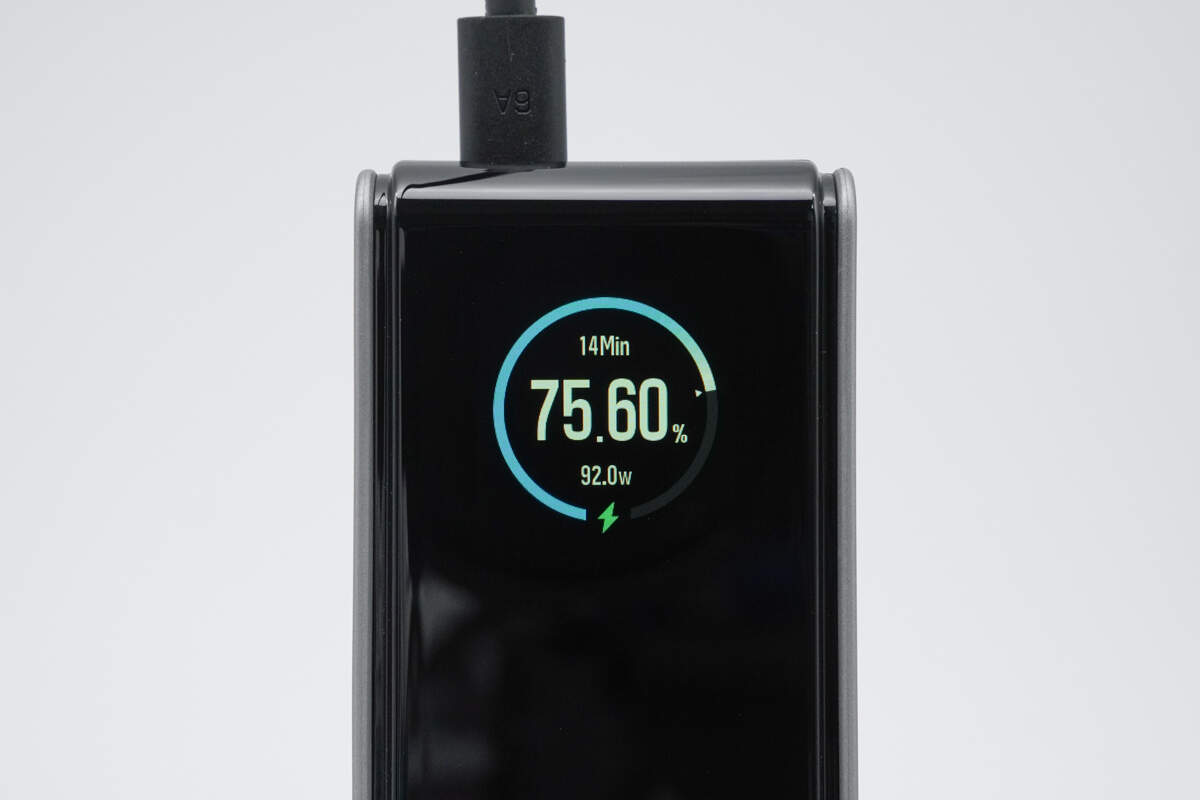
It also displays remaining battery capacity, input power, and the estimated time to full charge. A green lightning icon indicates the self-charging status.
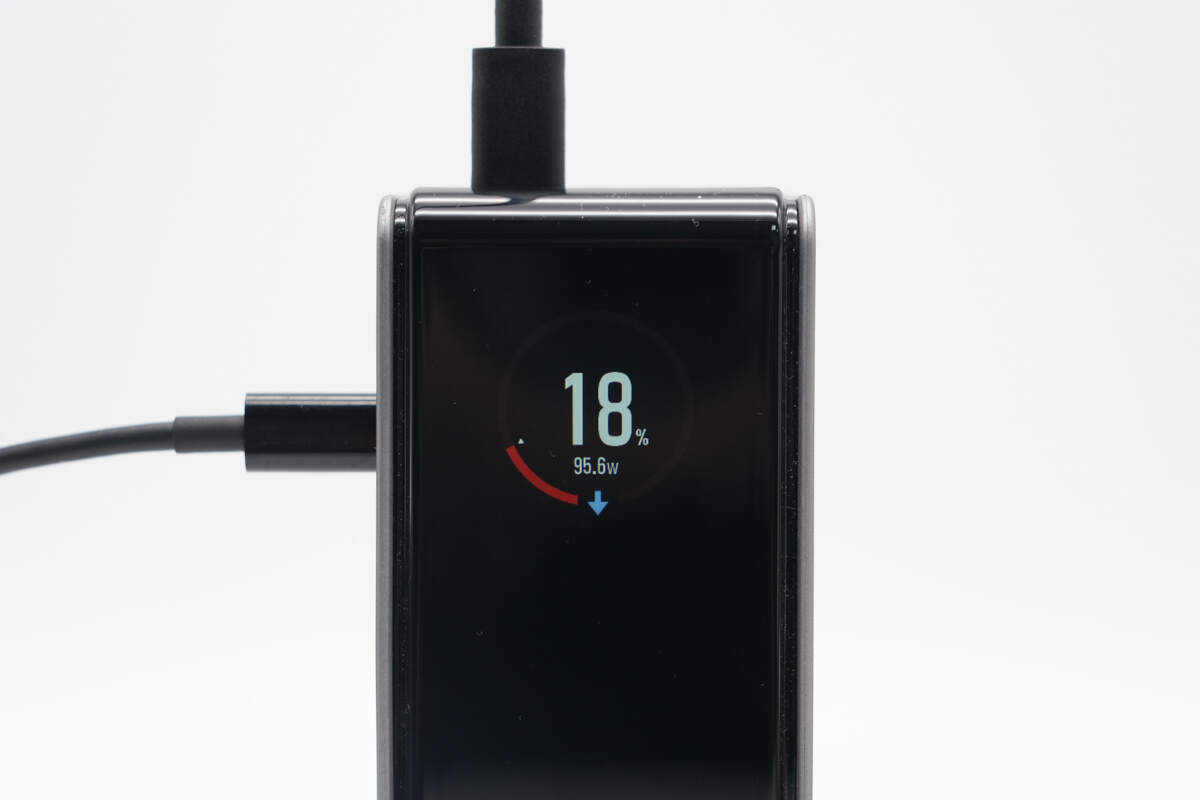
Output status is indicated by a blue downward arrow, along with the total output power displayed in real time.
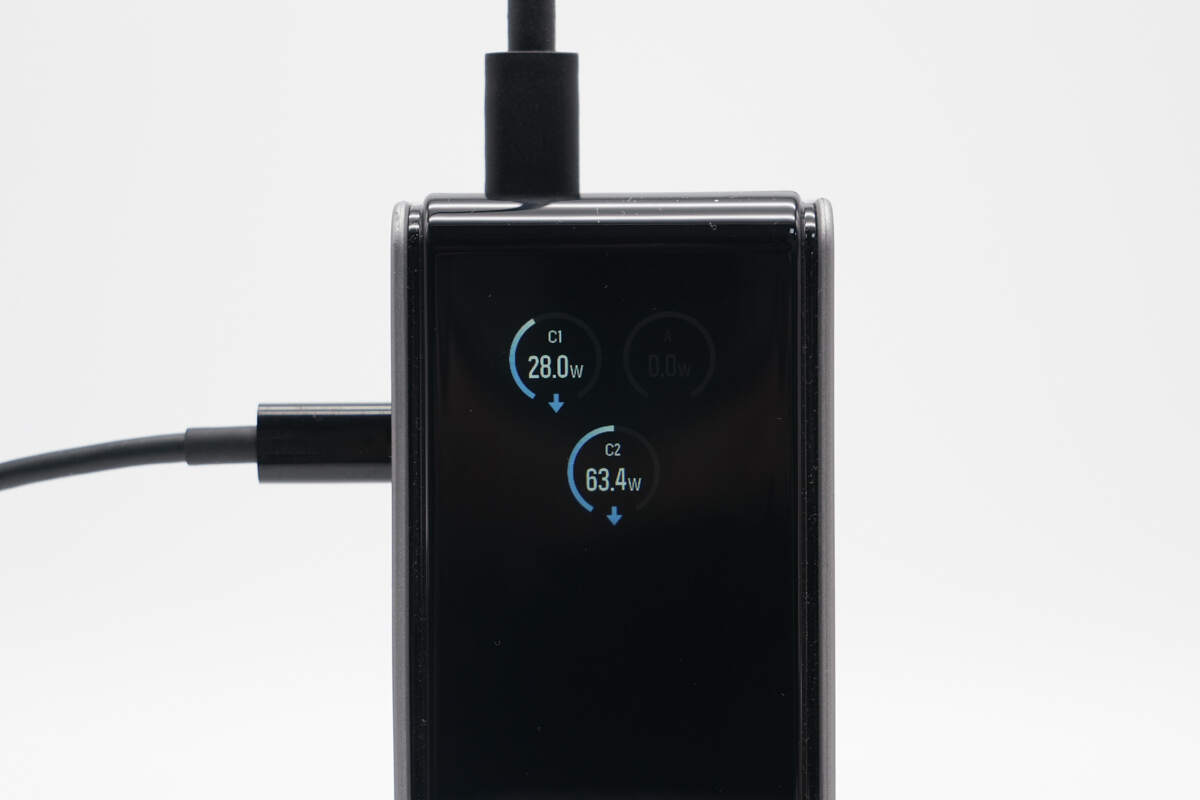
The status of each port, along with real-time input and output power, is also clearly displayed at a glance.
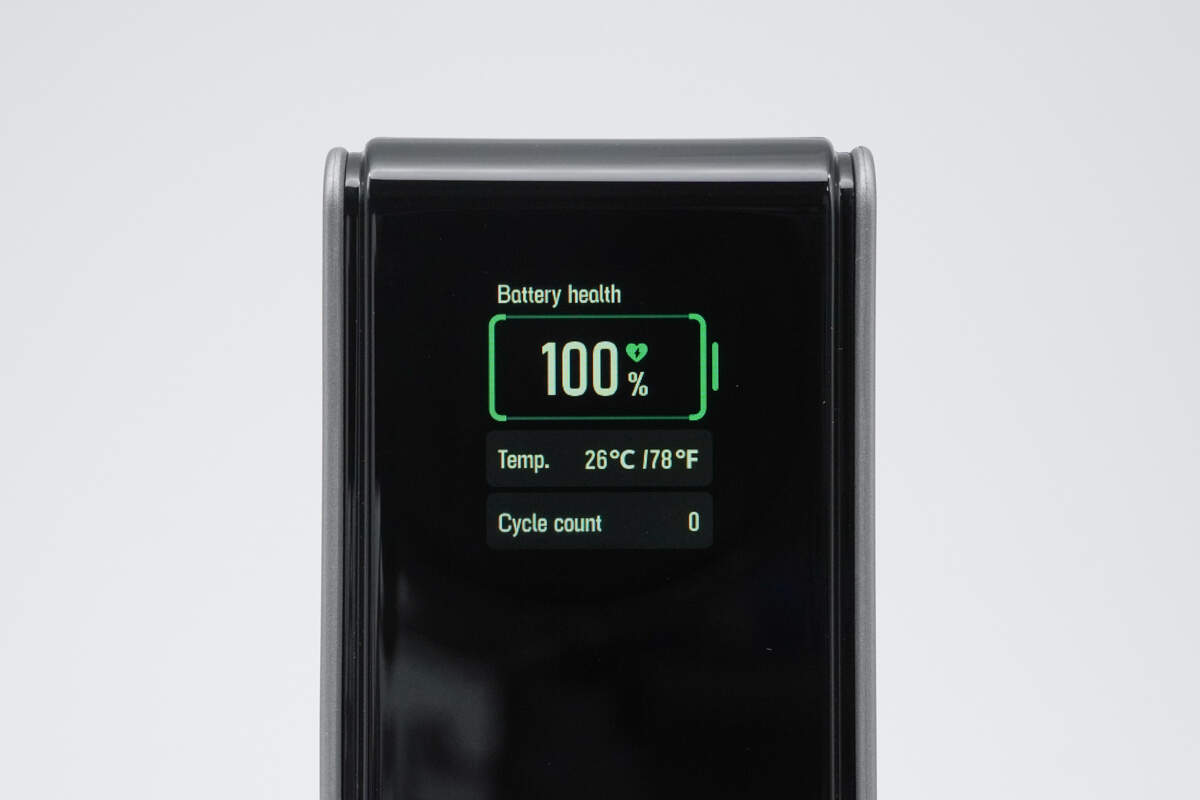
It also features an interface for battery health and real-time temperature feedback.
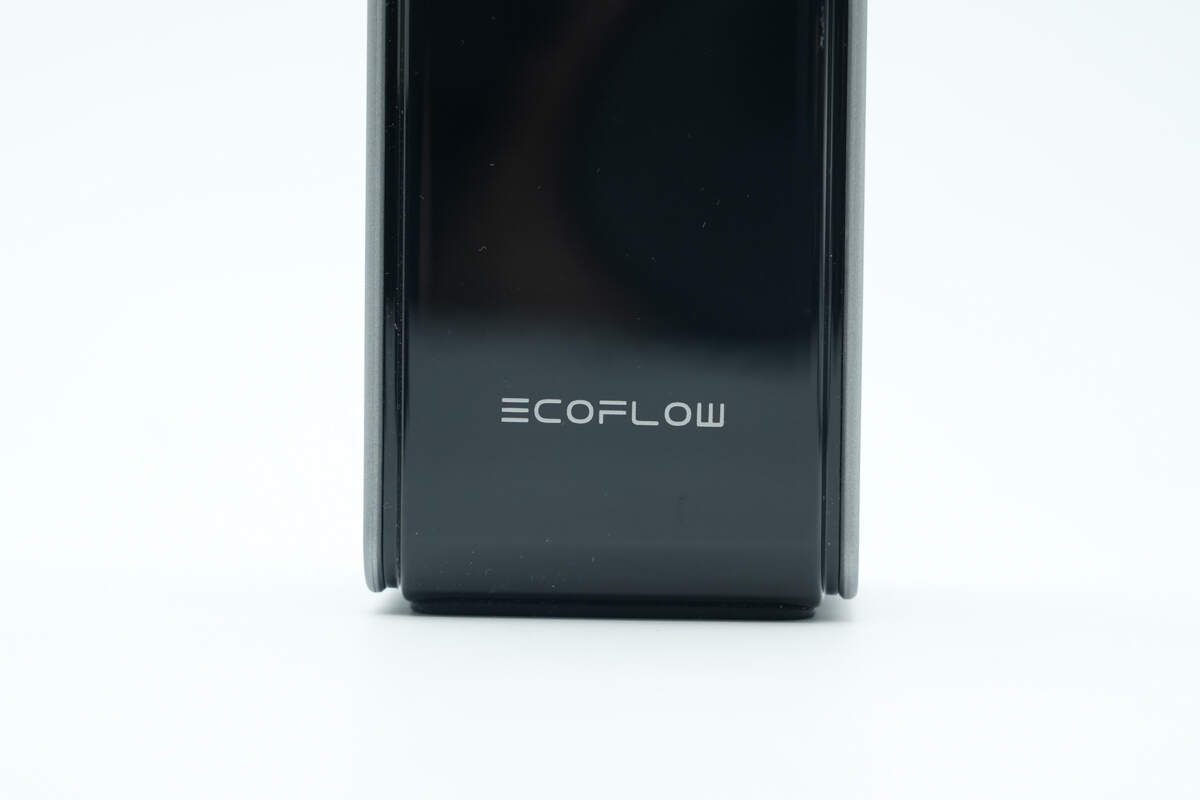
The EcoFlow logo is printed at the bottom of the front panel.
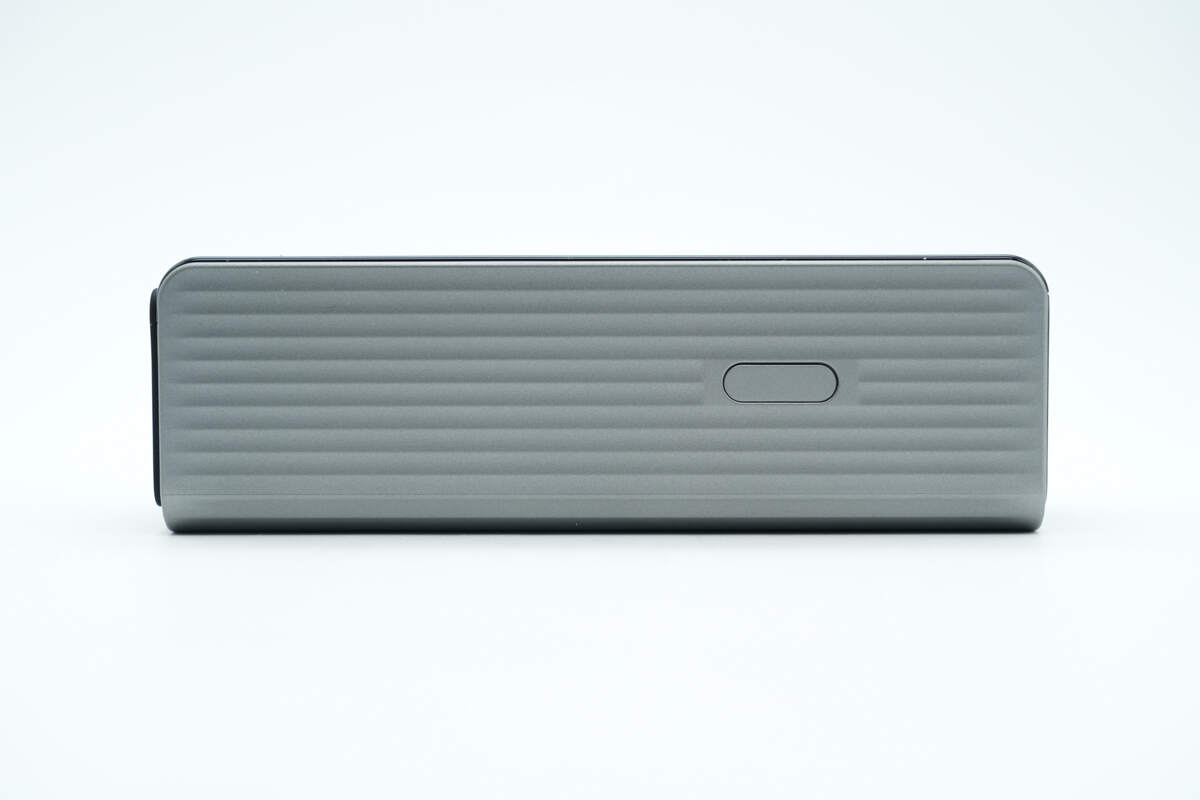
Both sides feature anti-slip designs, with the power button located on this side.
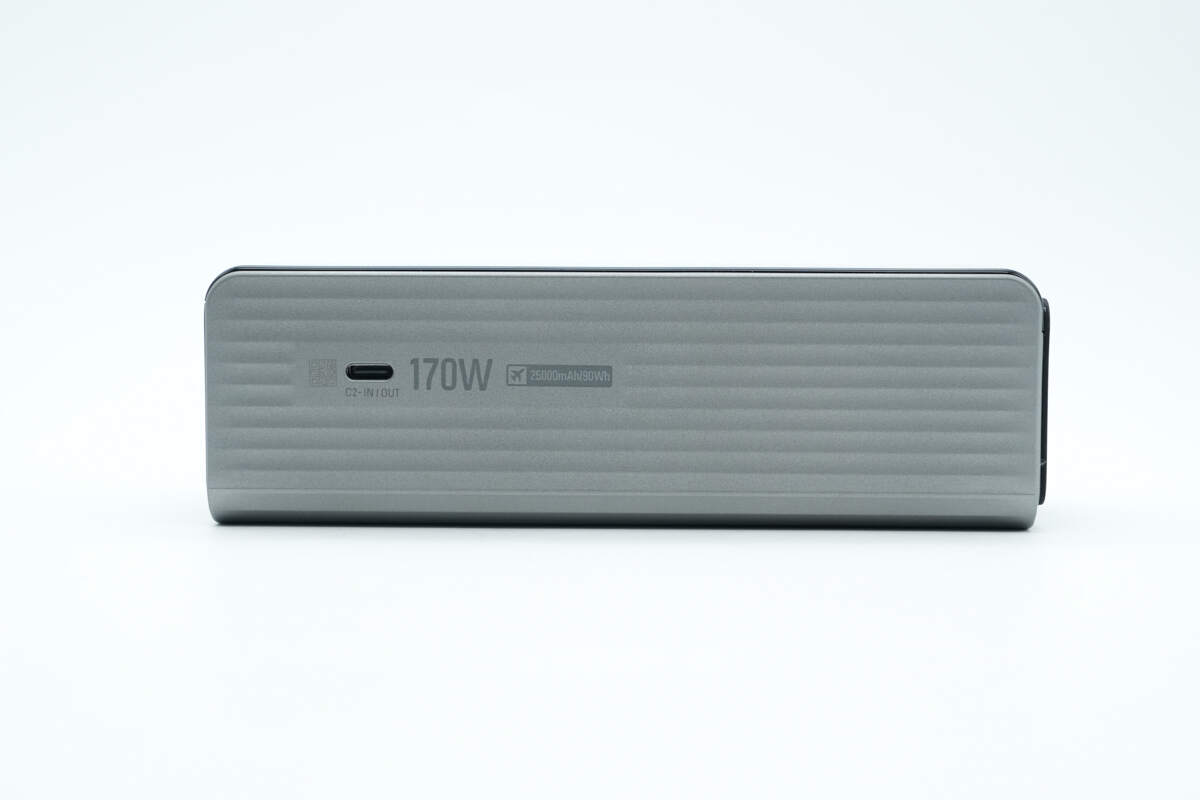
The opposite side houses the USB-C2 port. To the right of the port, markings indicate "170W," "25,000mAh / 90Wh," and a symbol showing it is airline carry-on approved.
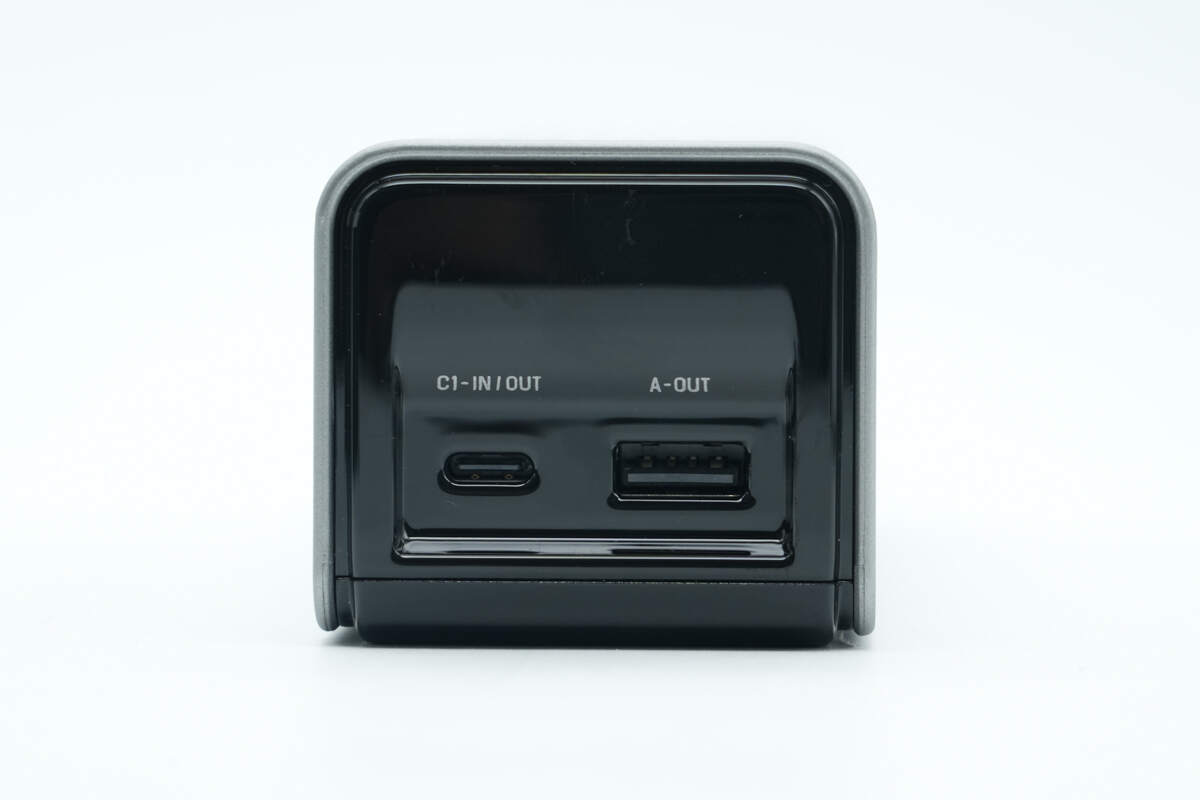
The top side is equipped with the USB-C1 port and a USB-A port.
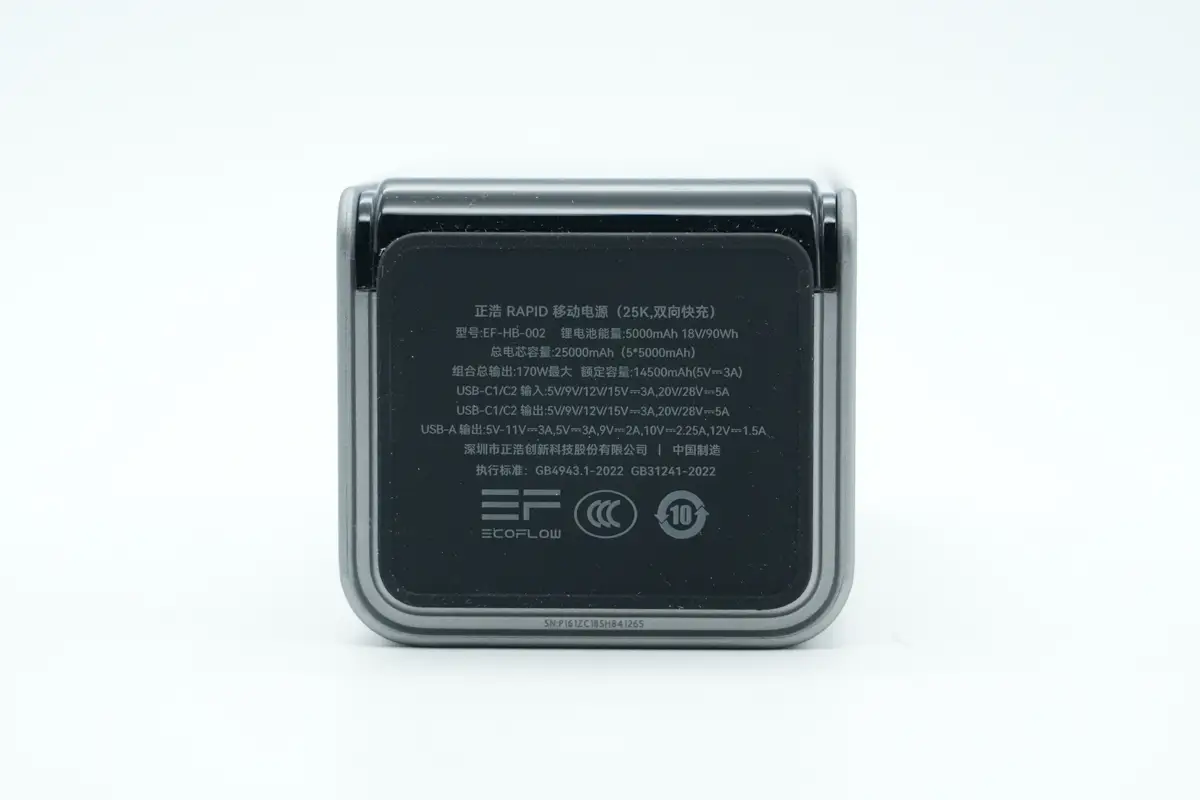
The bottom features an anti-slip pad and displays specifications.
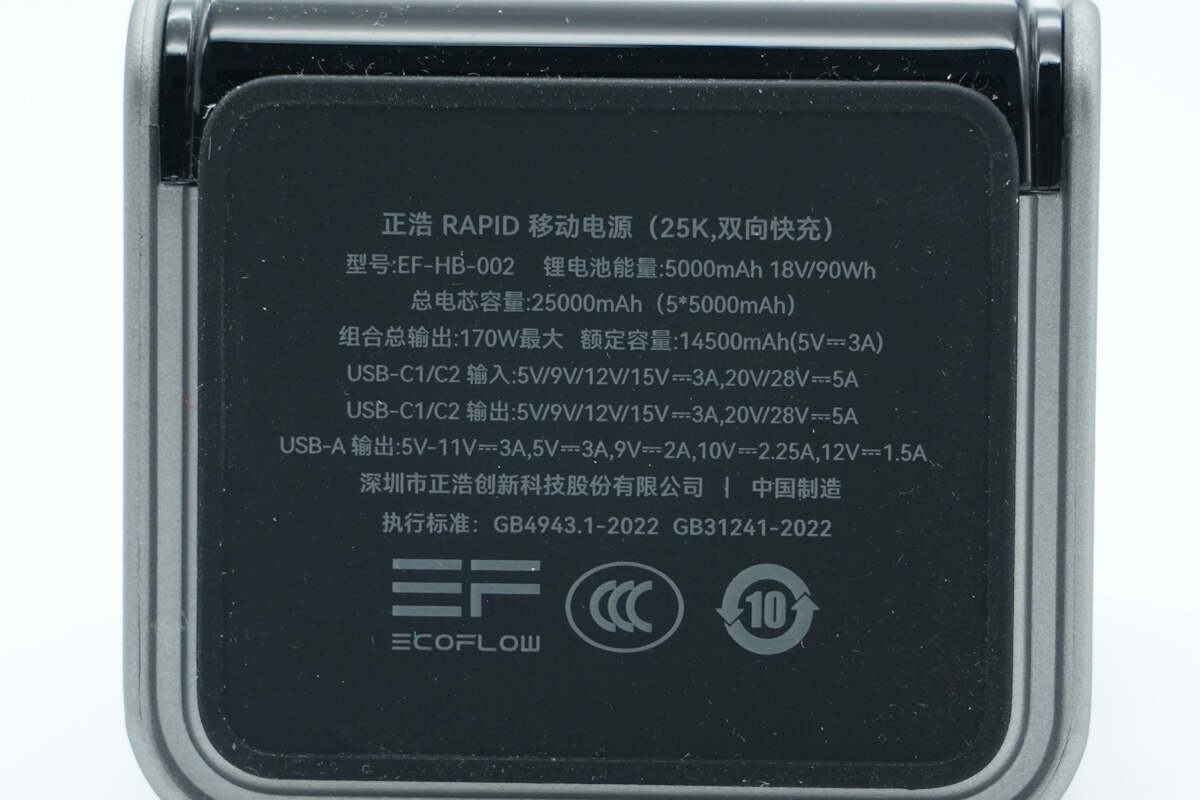
Model: EF-HB-002
Lithium Battery Energy: 5000mAh 18V / 90Wh
Total Cell Capacity: 25,000mAh (5 × 5000mAh)
Combined Maximum Output: 170W Max
Rated Capacity: 14,500mAh (5V 3A)
USB-C1/C2 Input: 5V / 9V / 12V / 15V 3A, 20V / 28V 5A
USB-C1/C2 Output: 5V / 9V / 12V / 15V 3A, 20V / 28V 5A
USB-A Output: 5-11V 3A, 5V 3A, 9V 2A, 10V 2.25A, 12V 1.5A
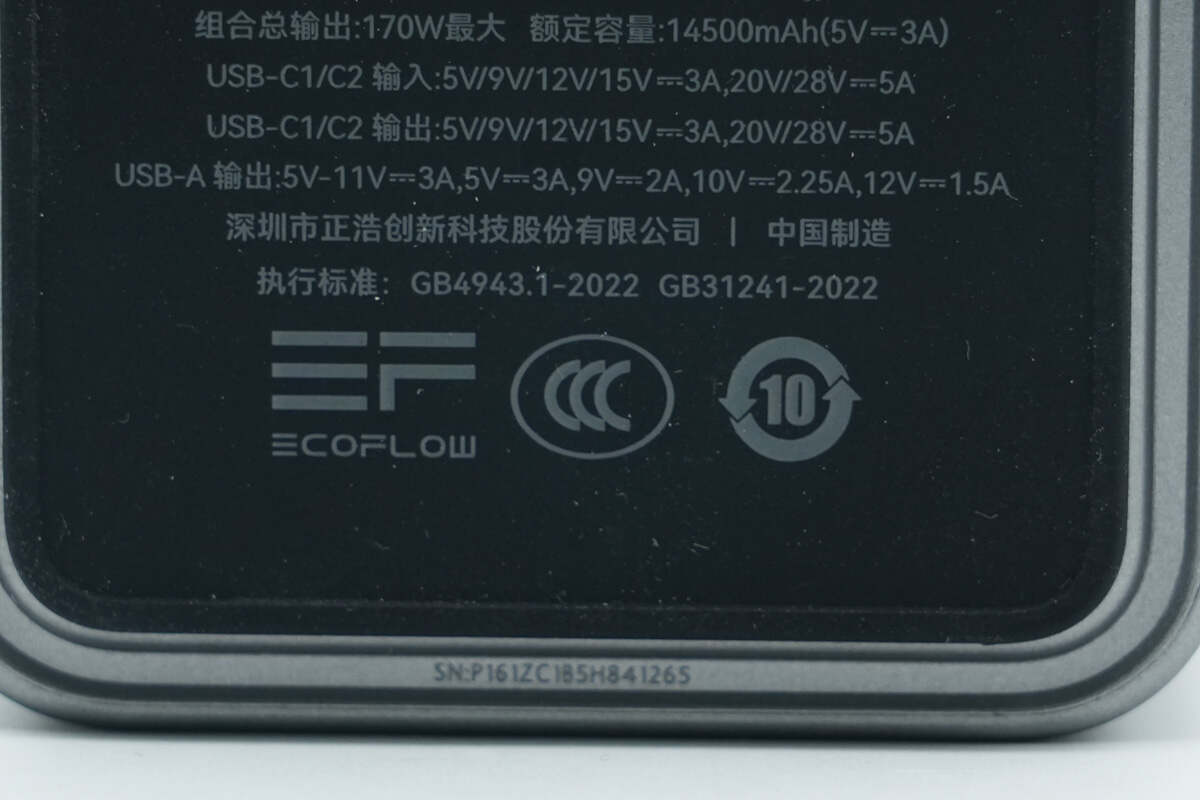
It has obtained CCC certification.
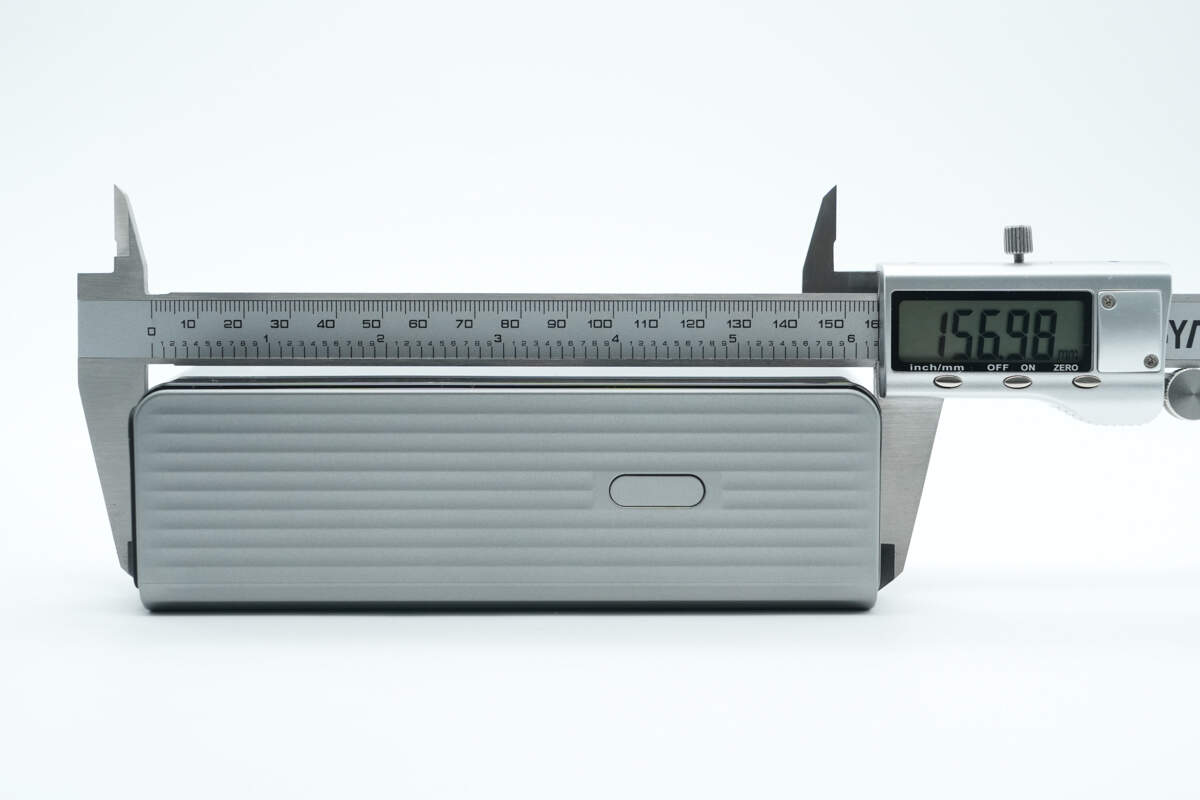
The length of the power bank is about 156.98 mm (6.18 inches).
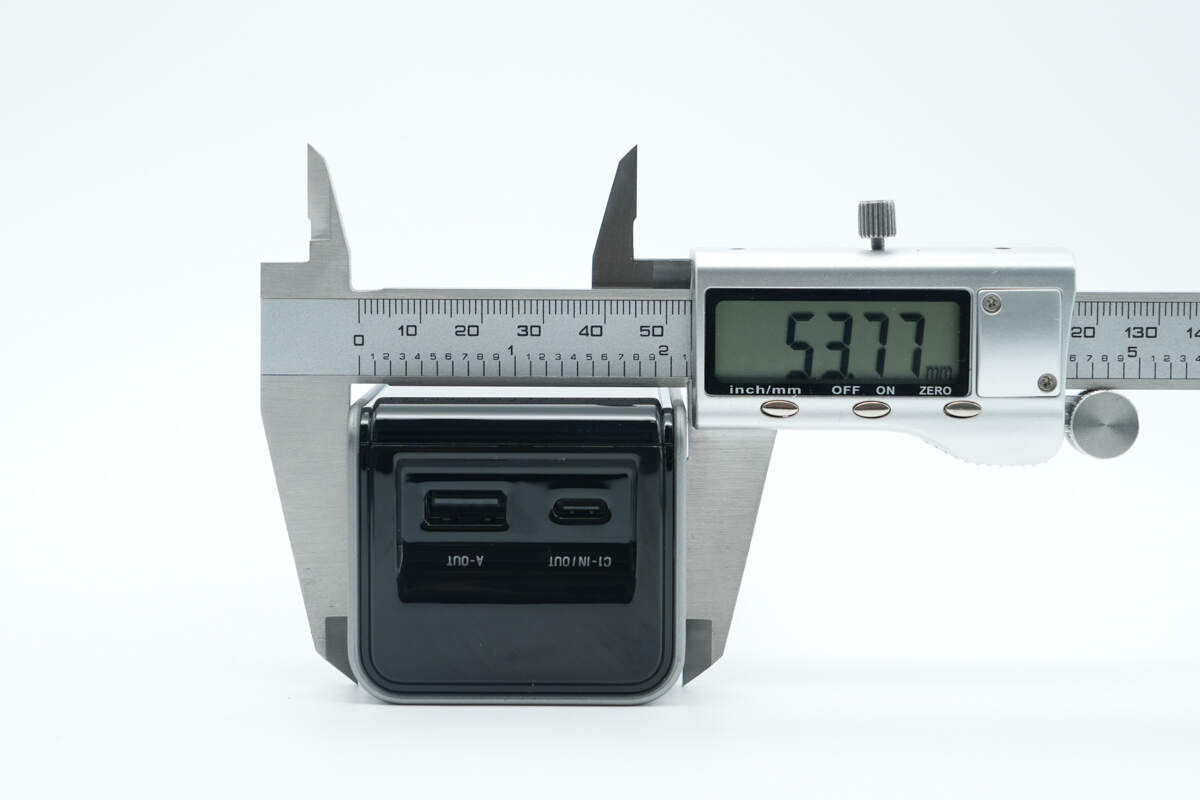
The width is about 53.77 mm (2.12 inches).
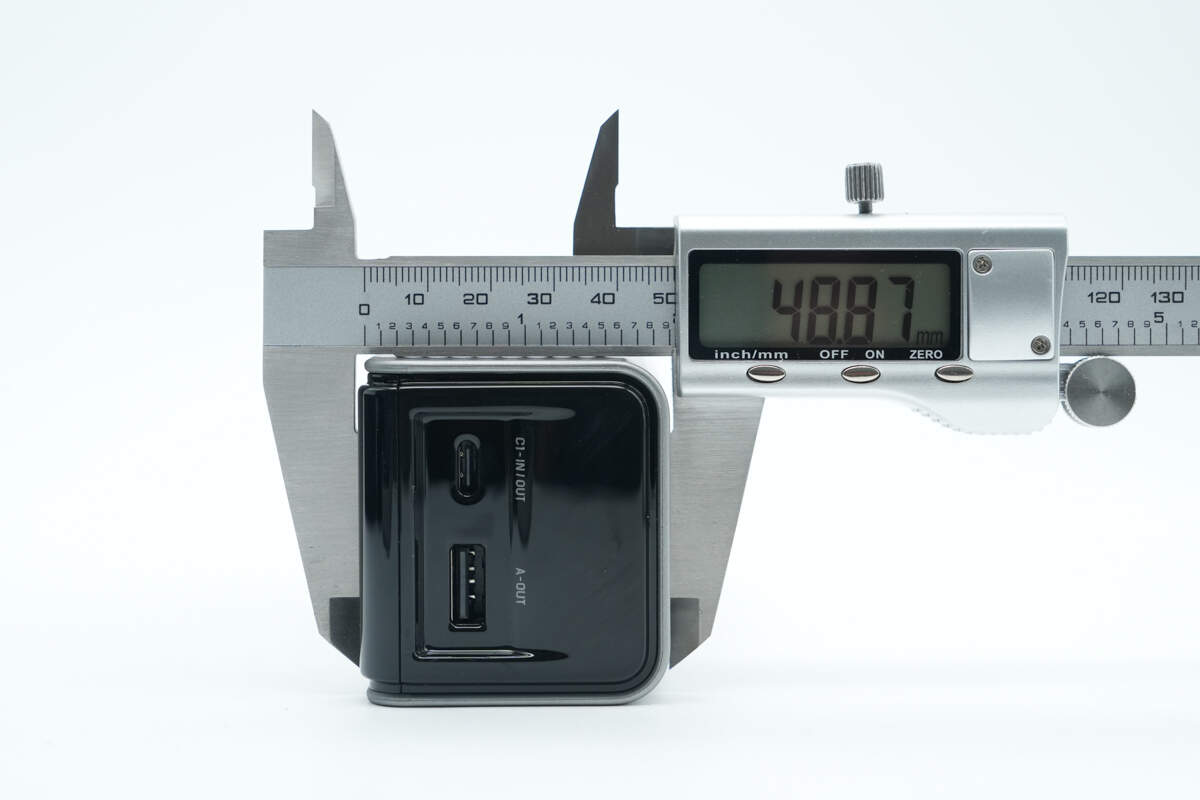
The thickness is about 48.87 mm (1.92 inches).
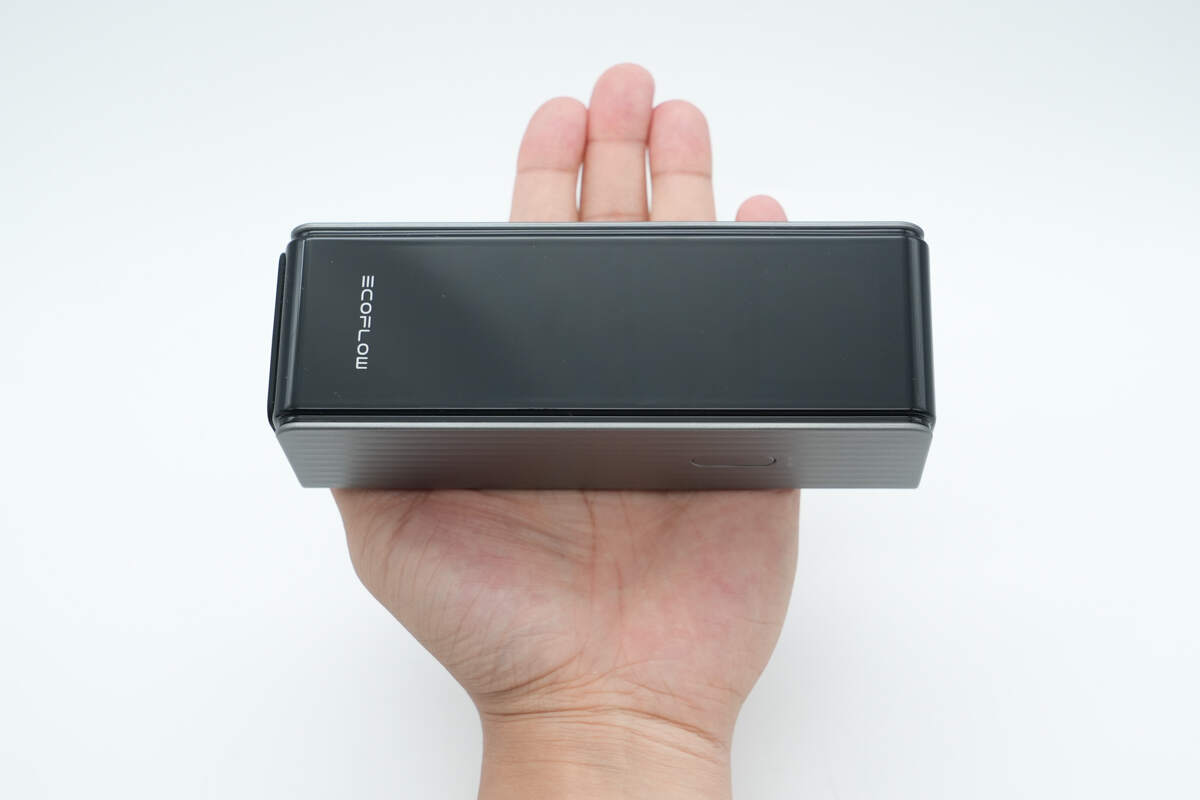
That's how big it is in the hand.
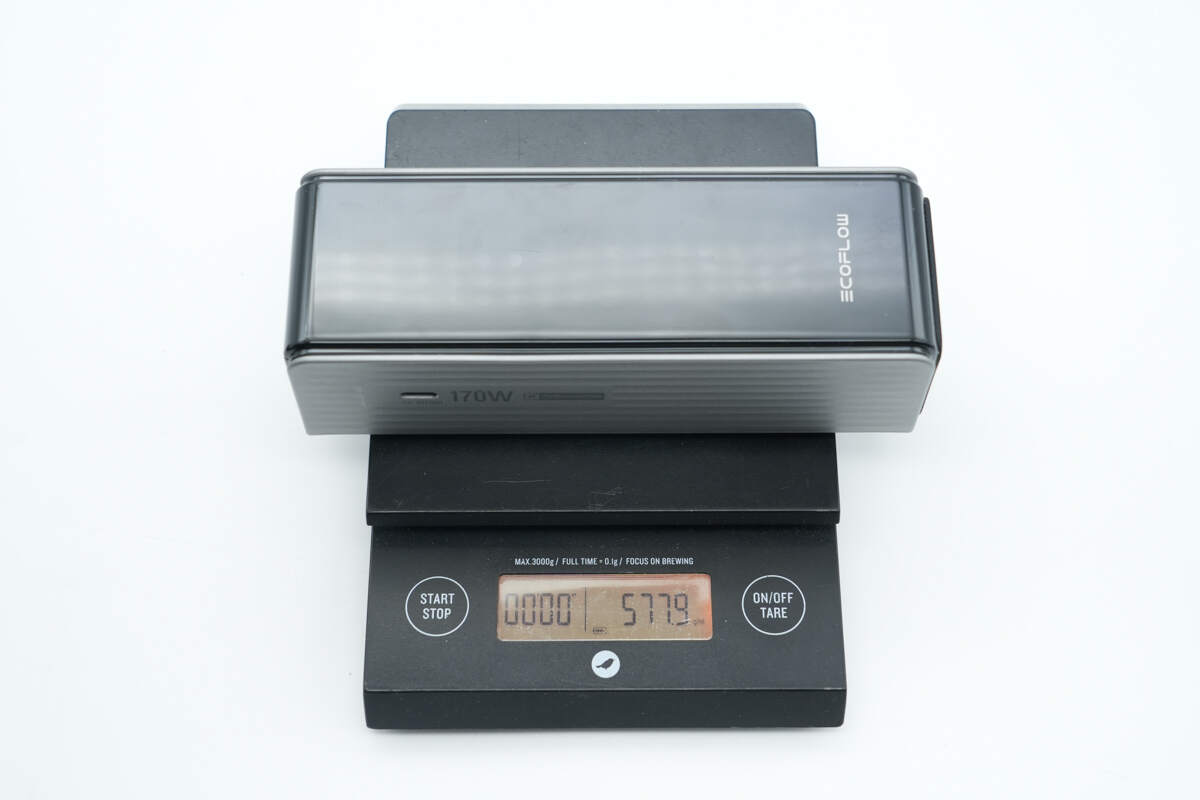
The weight is about 578 g (20.39 oz).
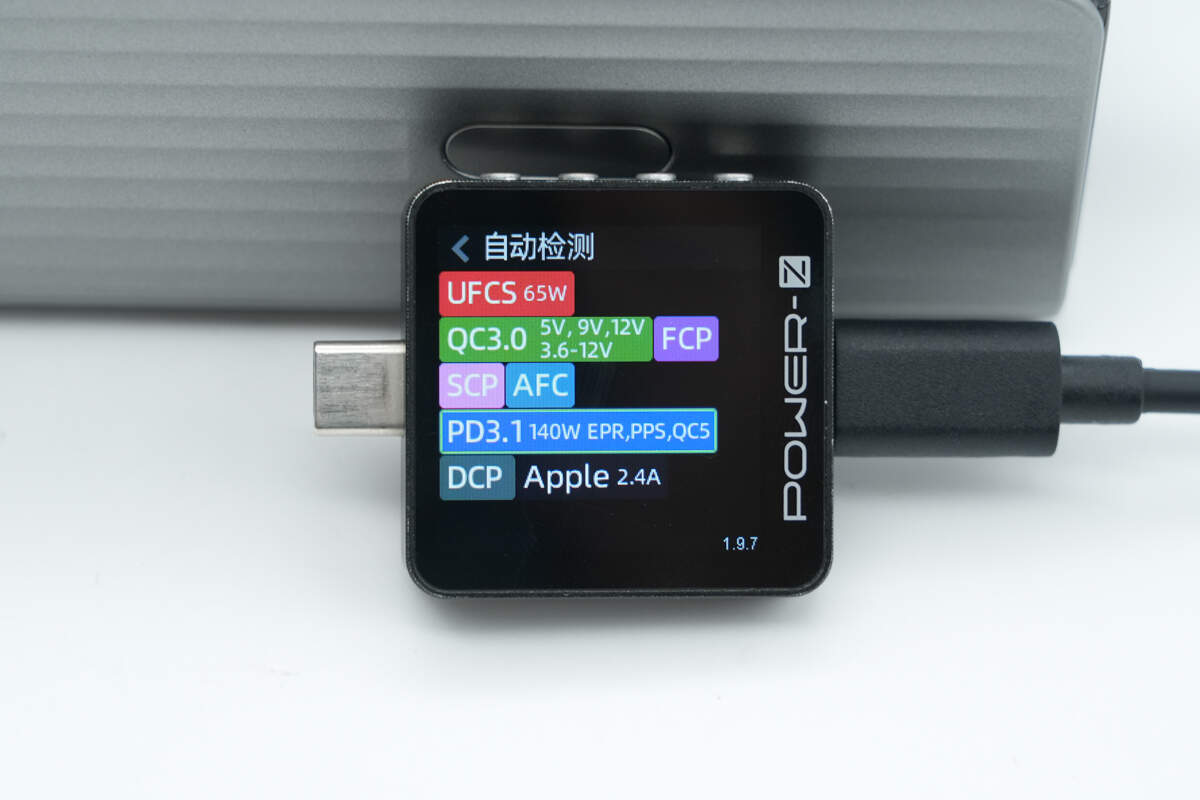
ChargerLAB POWER-Z KM003C shows that the USB-C1 supports UFCS, QC3.0/5, FCP, SCP, AFC, PD3.1, PPS, DCP, and Apple 2.4A charging protocols.
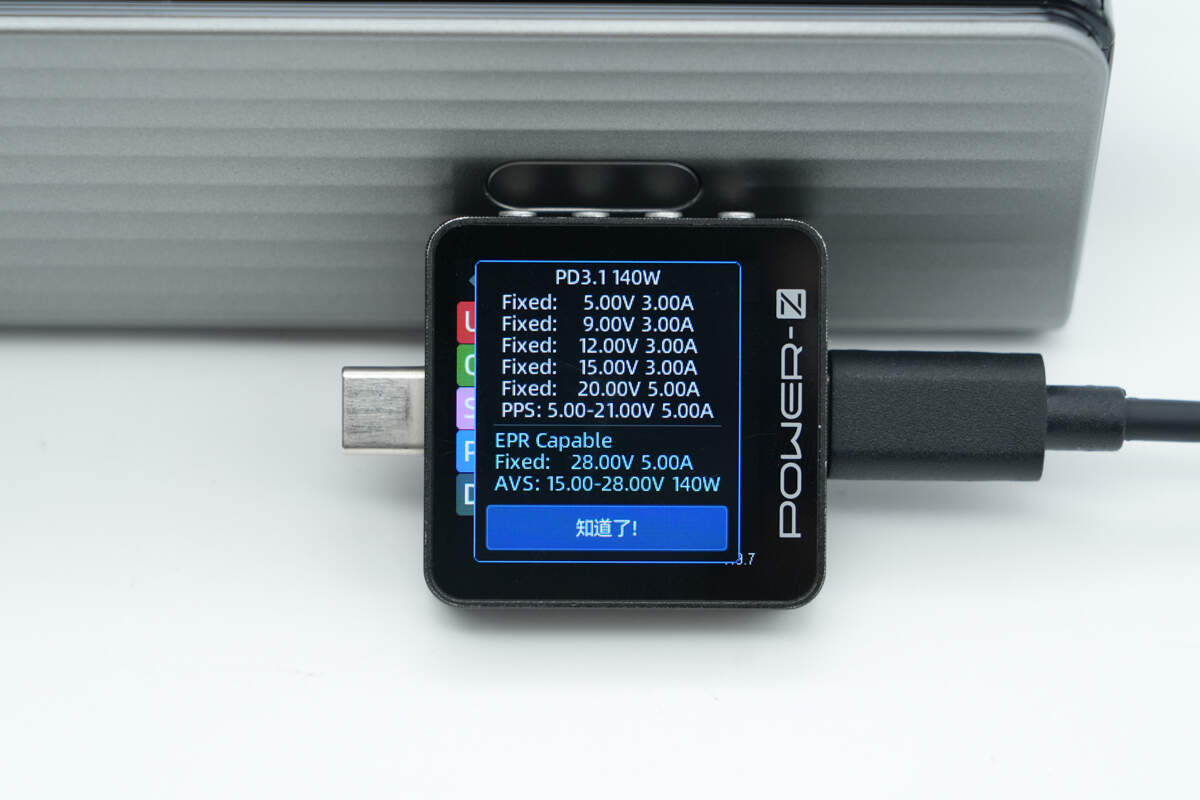
And it has six fixed PDOs of 5V3A, 9V3A, 12V3A, 15V3A, 20V5A, and 28V5A. It has one PPS voltage profile of 5-11V4.75A and one AVS profile of 15-28V 140W.
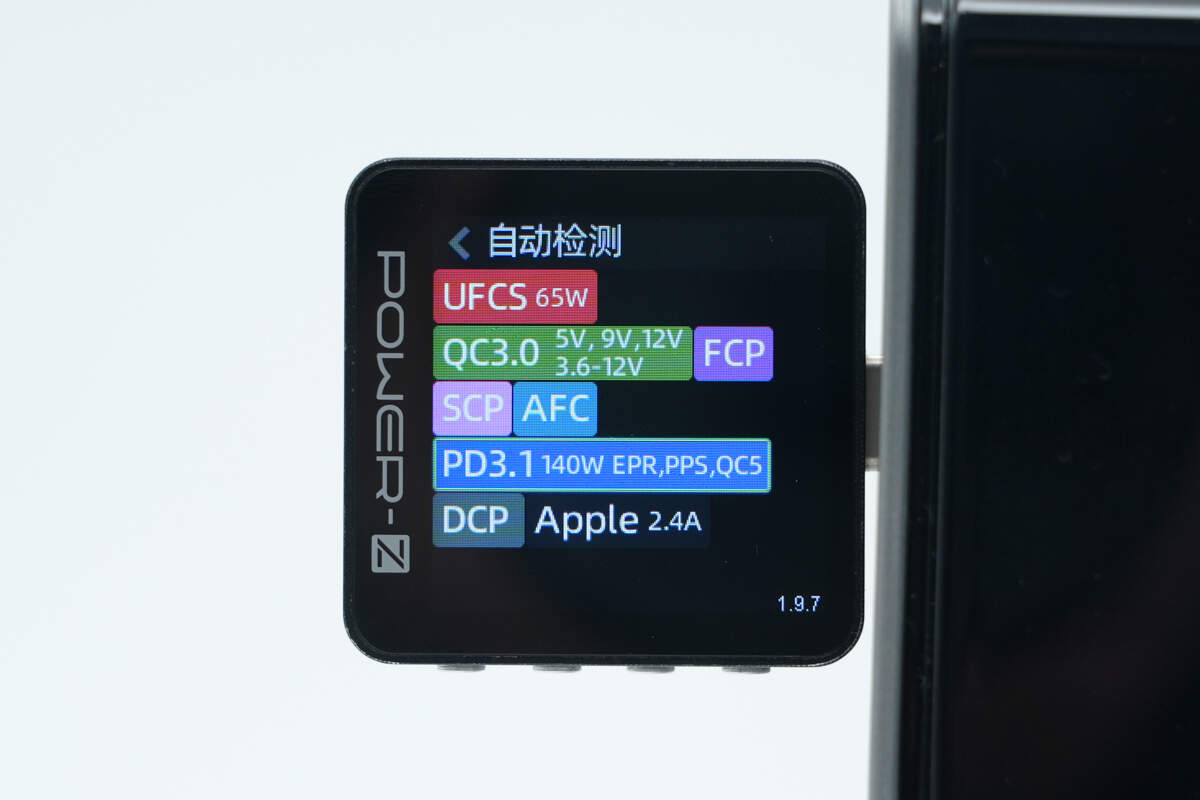
The USB-C2 port supports the same protocols as the USB-C1 port.
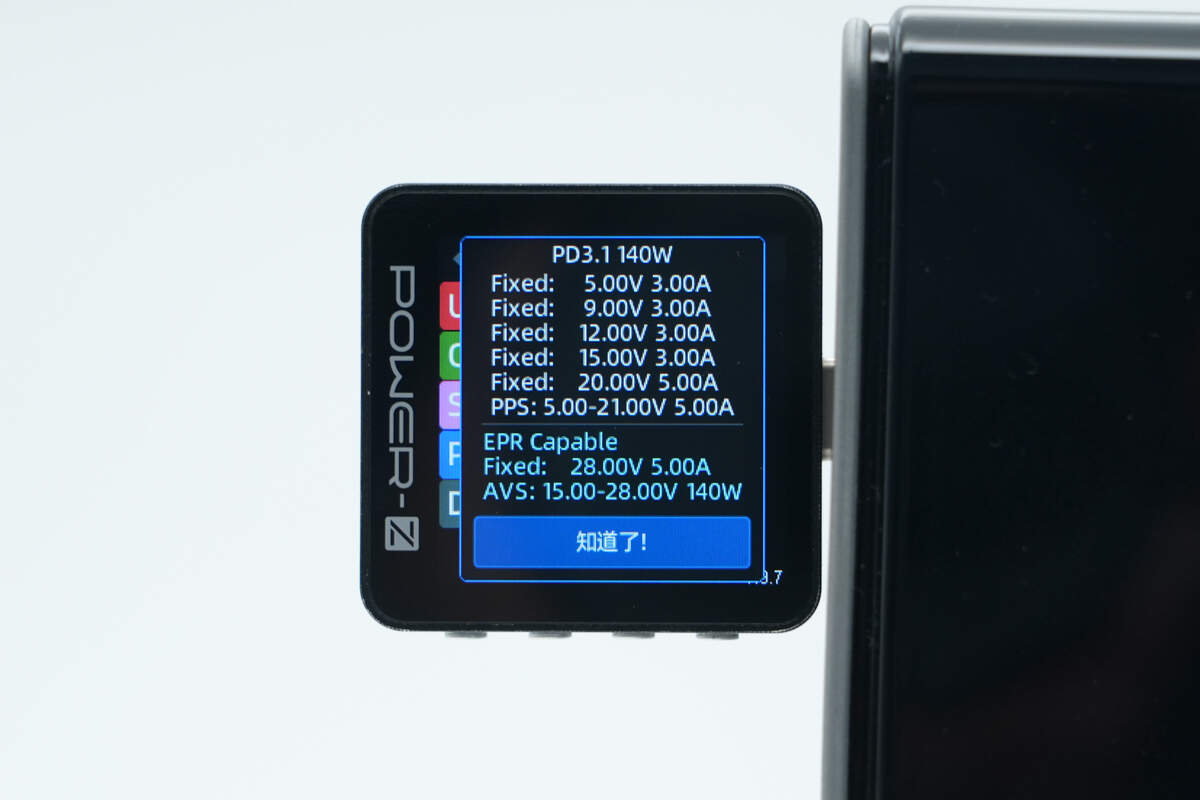
The PDO messages for USB-C2 are identical to those of USB-C1.
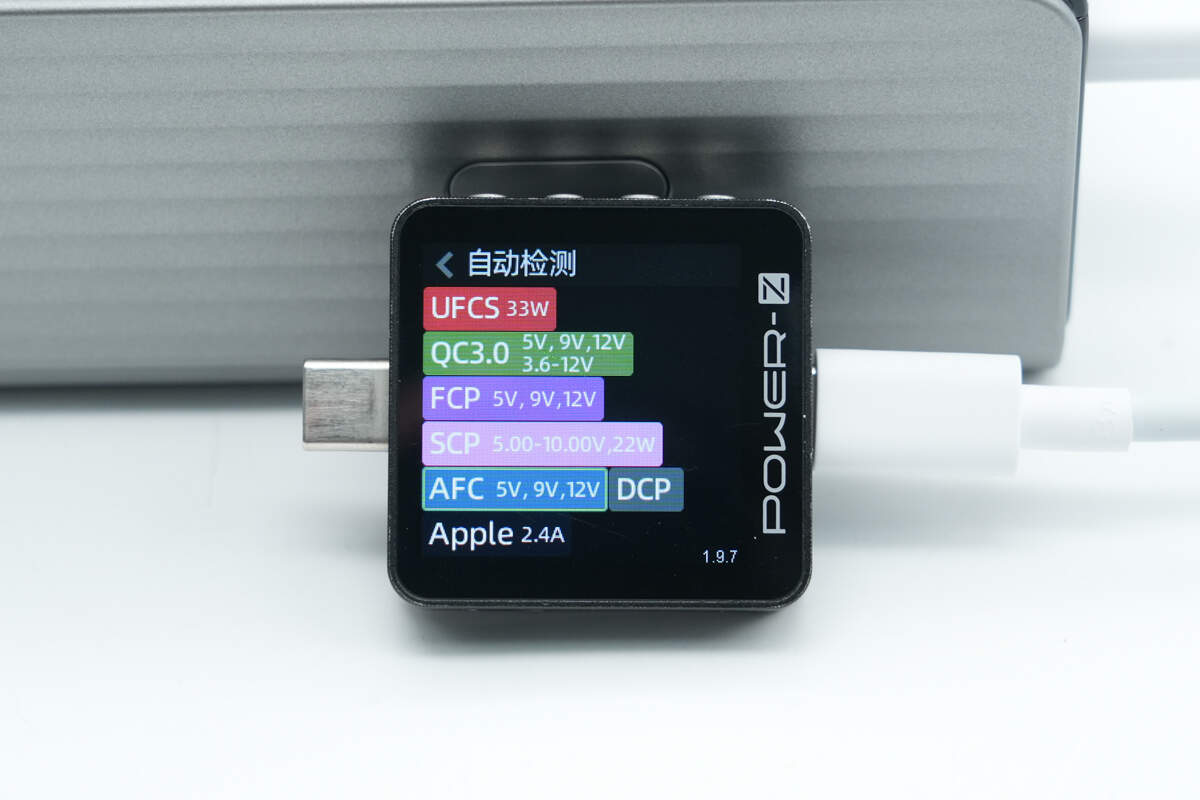
The USB-A supports UFCS, QC3.0, FCP, SCP, AFC, DCP, and Apple 2.4A charging protocols.

When charging with the Apple 140W charger, the input power is about 136.25W, successfully activating 28V⎓5A 140W PD fast charging.
Teardown
Next, let's take it apart to see its internal components and structure.

Remove the front decorative panel. The inner side features a graphite sheet and is insulated for safety.
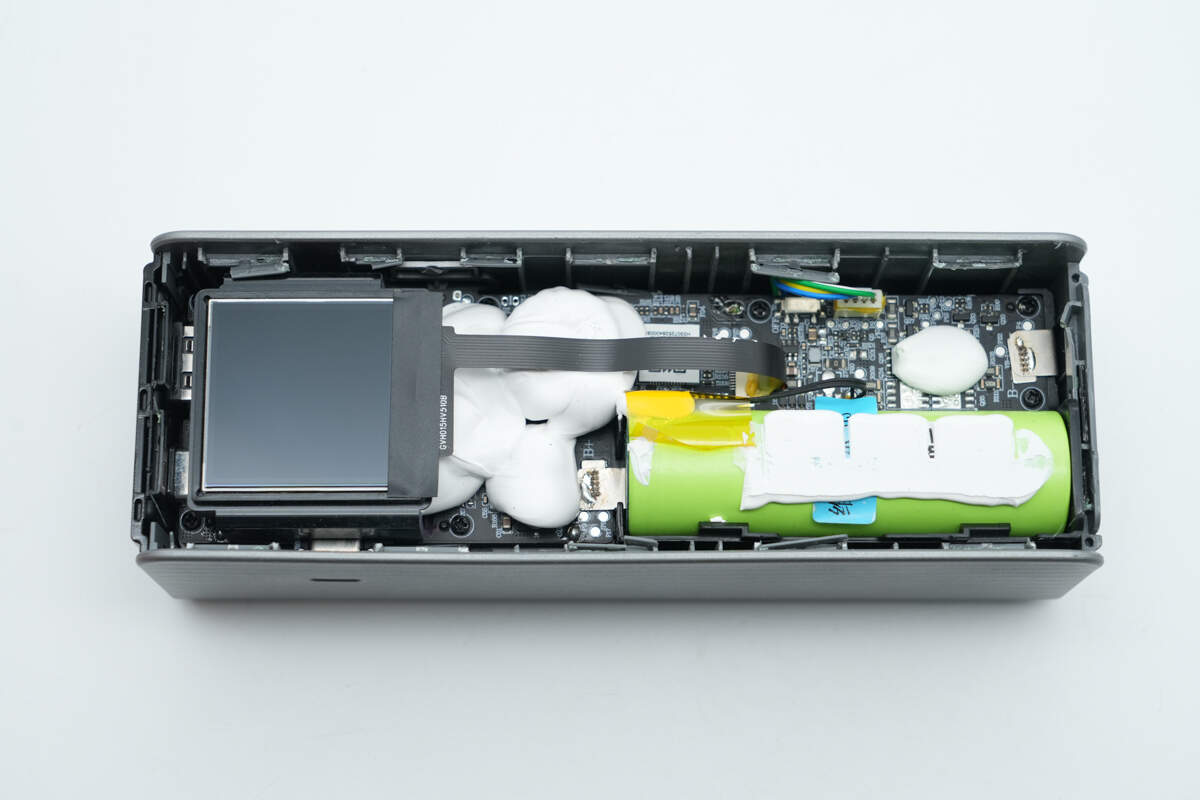
The PCBA module and battery cells are extensively filled with white adhesive for protection and structural reinforcement.
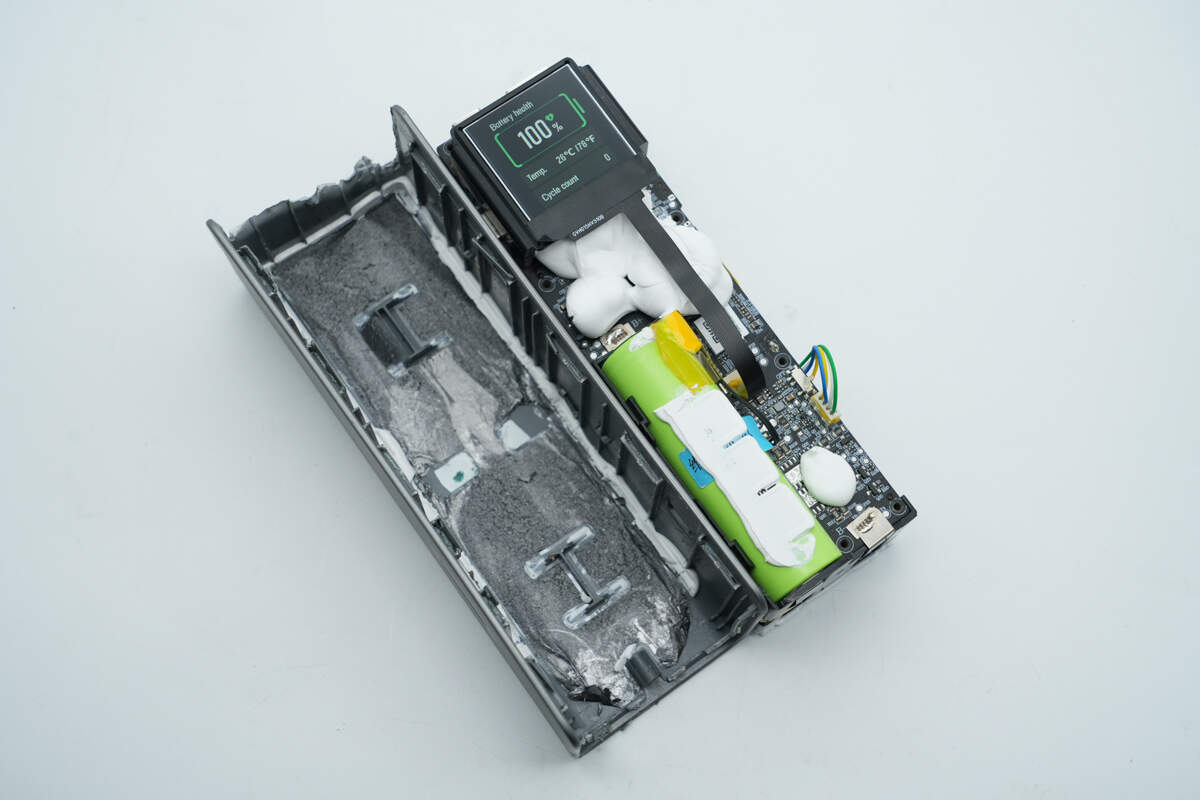
Cut open both ends of the casing. Remove the PCBA module from the casing.

The bottom of the other section of the enclosure is also lined with a graphite sheet.
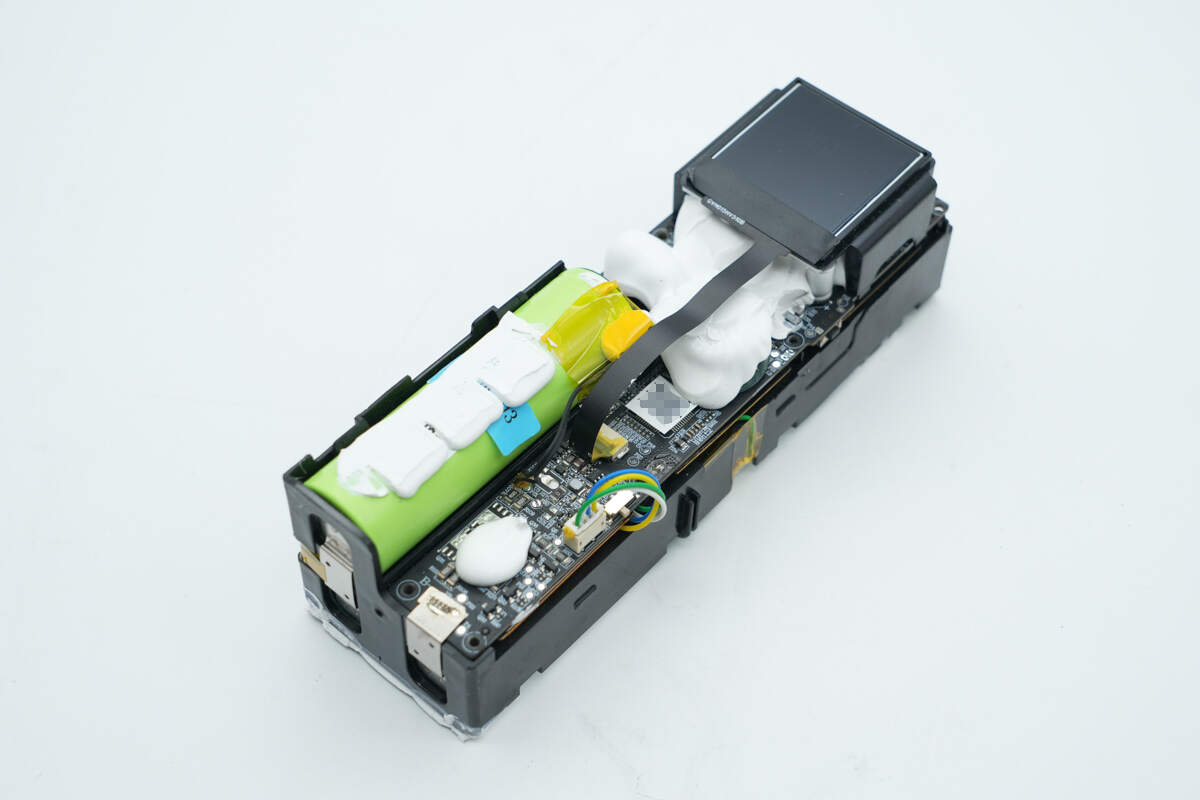
A plastic frame is installed between the PCB and the battery pack for support. The battery pack connects to the PCB via a plug-and-play connector. The display is also connected to the PCB through a detachable flex cable, with all connectors reinforced with adhesive.
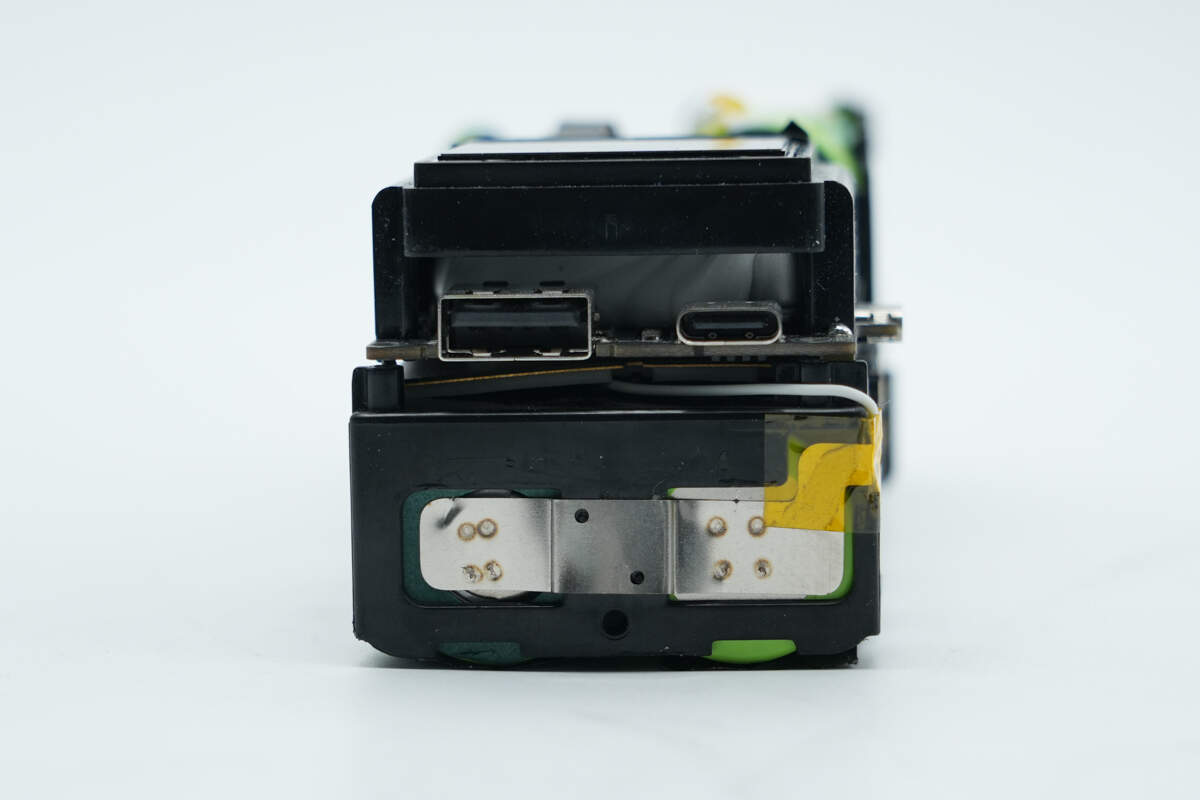
The PCB is supported by mounting posts, creating a gap underneath to effectively prevent heat buildup.
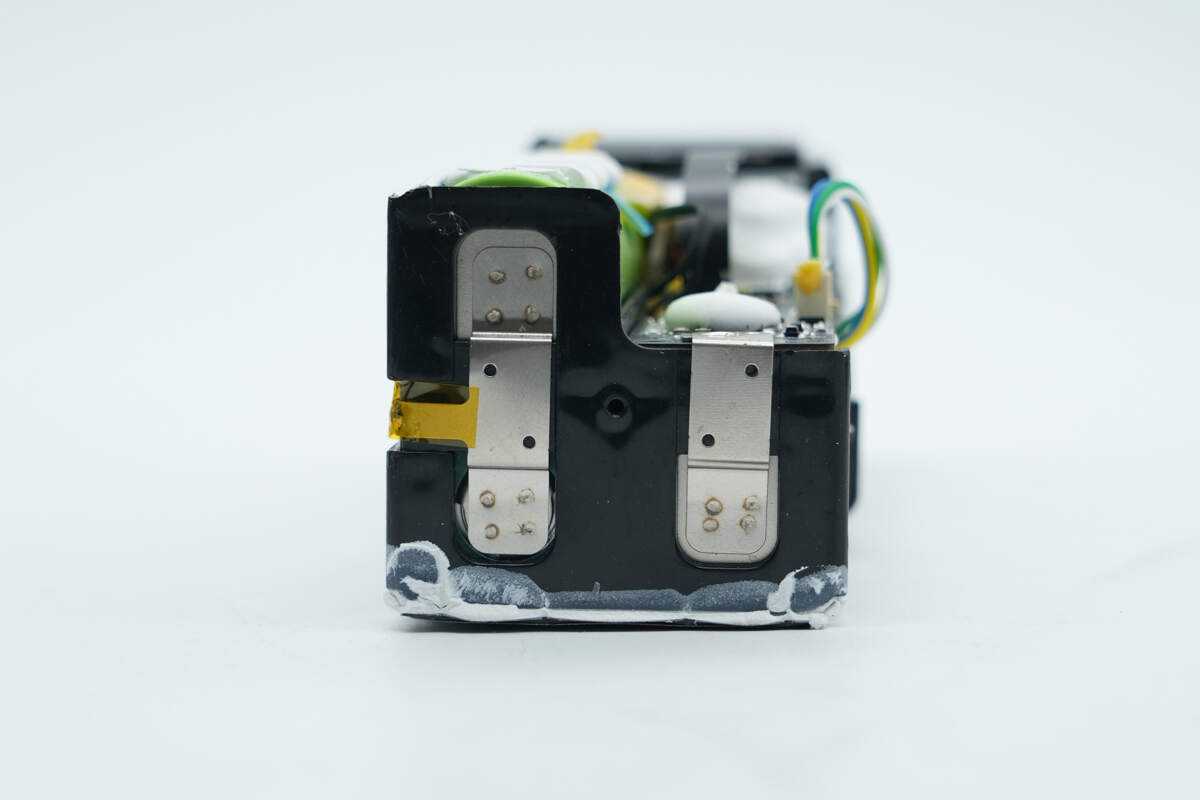
The battery cells are connected through nickel strips.

Separate the PCB and the battery pack.
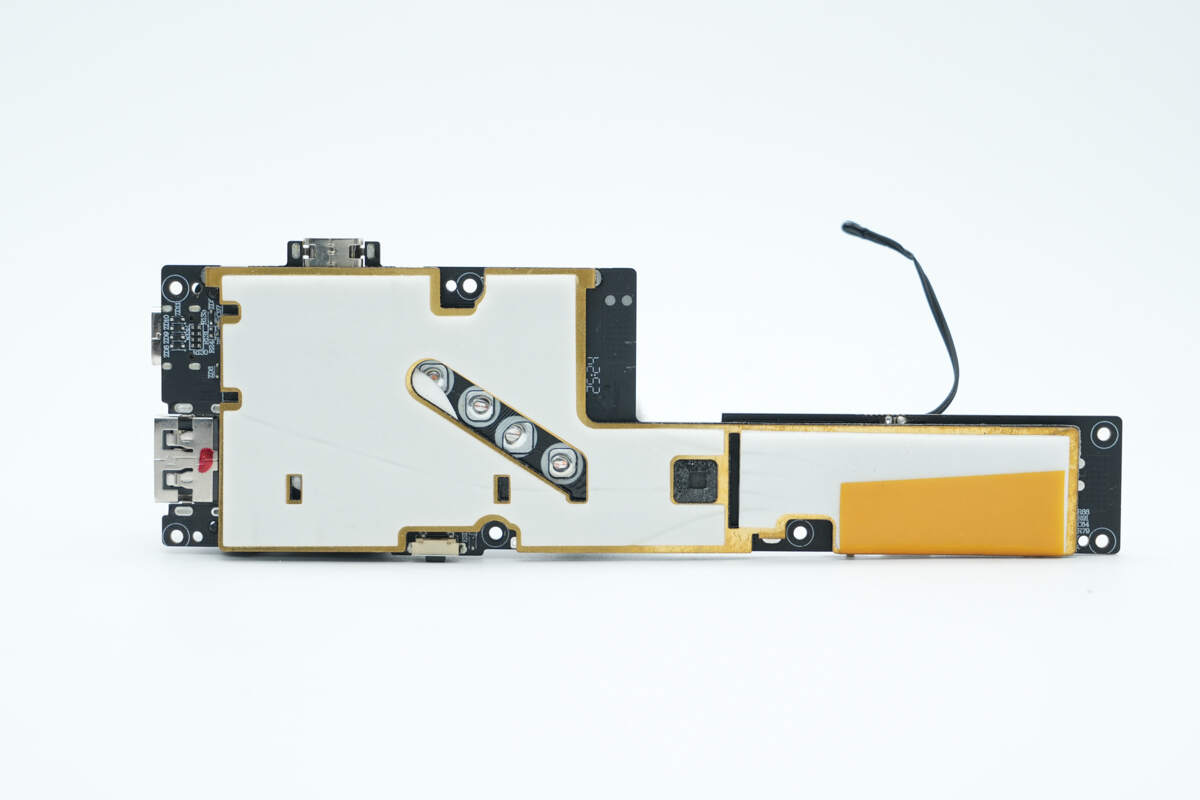
The back of the PCB is covered by a metal heat sink with protective foam underneath.
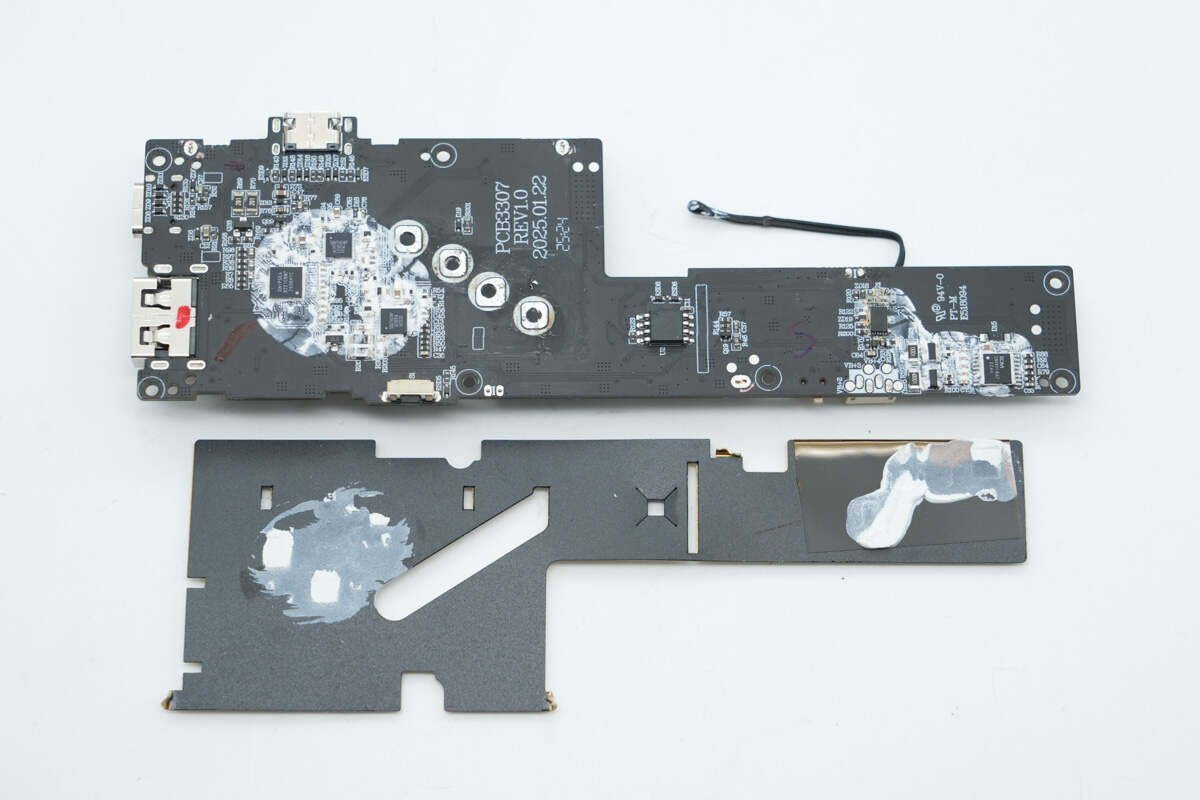
Remove the heat sink. A mylar sheet is on its inner side for insulation.
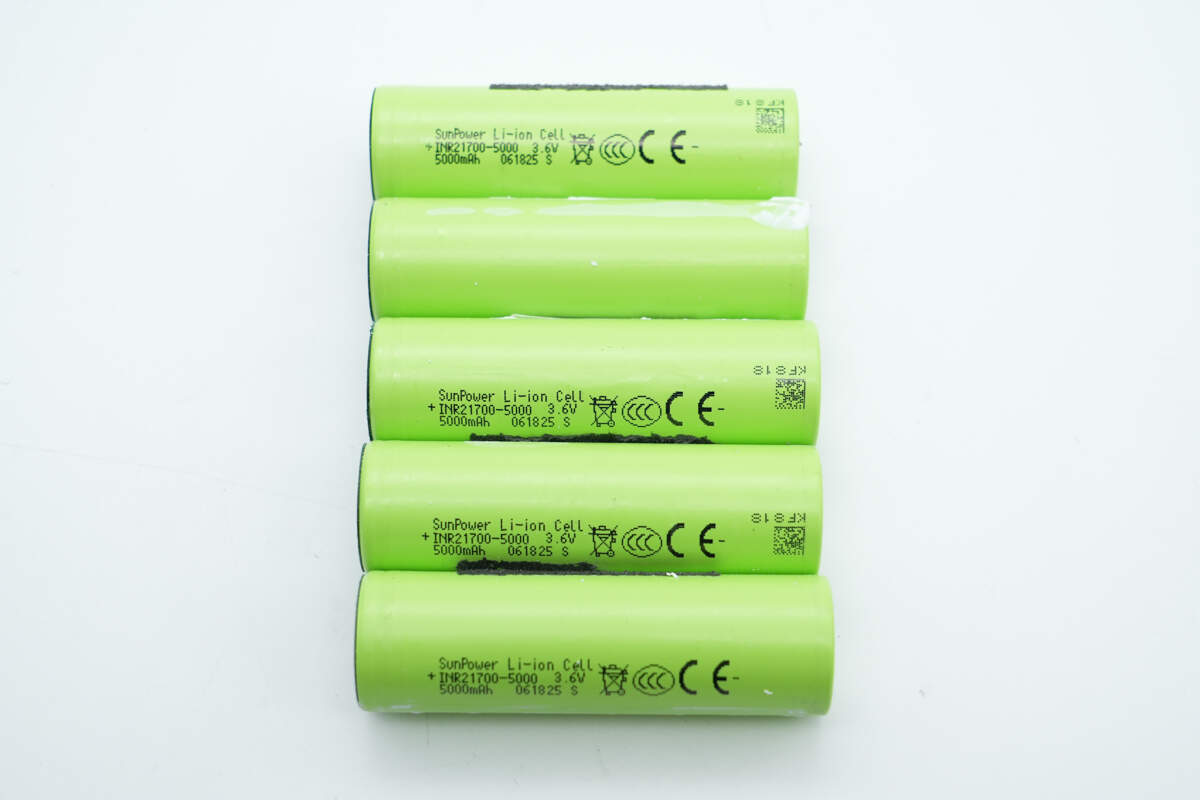
The battery pack consists of five identical 21700 lithium-ion cells.
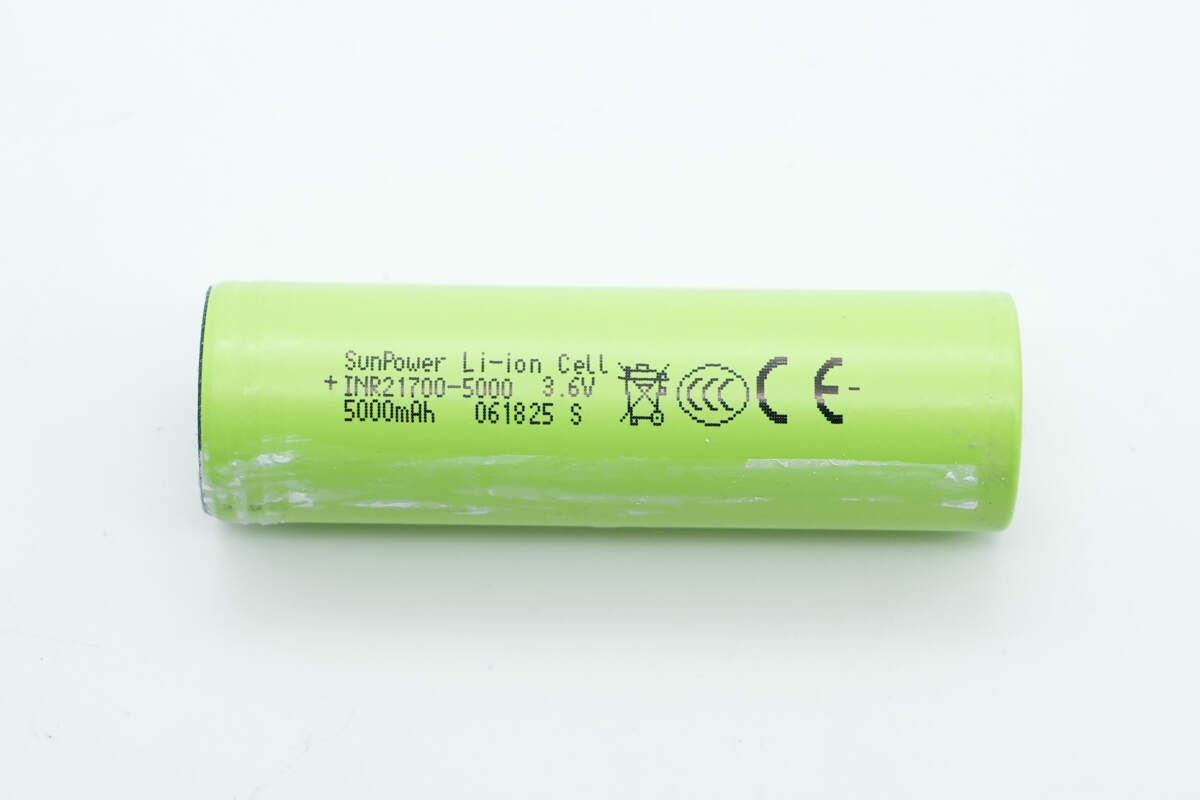
The five cells are manufactured by SunPower, model INR21700-5000, with a nominal voltage of 3.6V, a nominal capacity of 5000mAh, and a charge cutoff voltage of 4.2V. They are CCC and CE certified.

After removing the white adhesive from the PCB, the front side reveals battery protection MOSFETs, an MCU, a synchronous buck converter, synchronous buck-boost MOSFETs, solid capacitors, and VBUS MOSFETs.
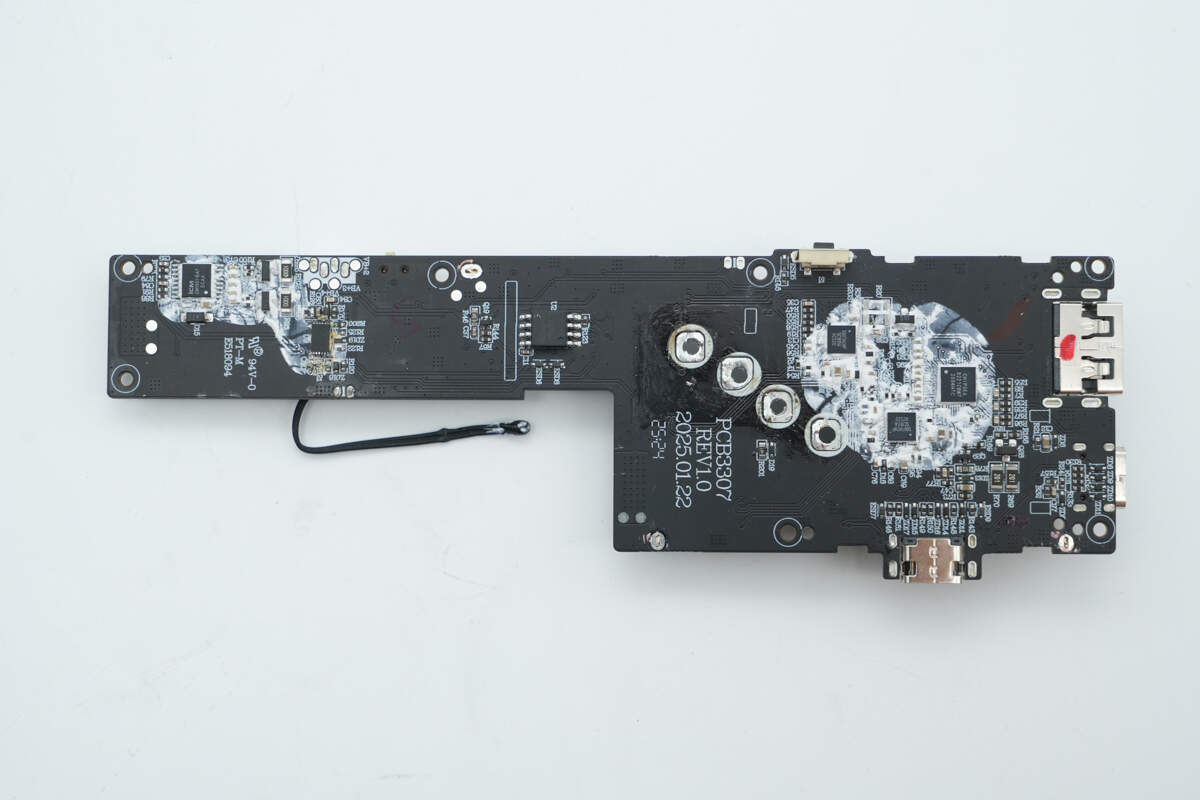
The back side houses components including a battery protection chip, a battery fuel gauge chip, a memory, synchronous buck-boost controllers, and a PD controller.
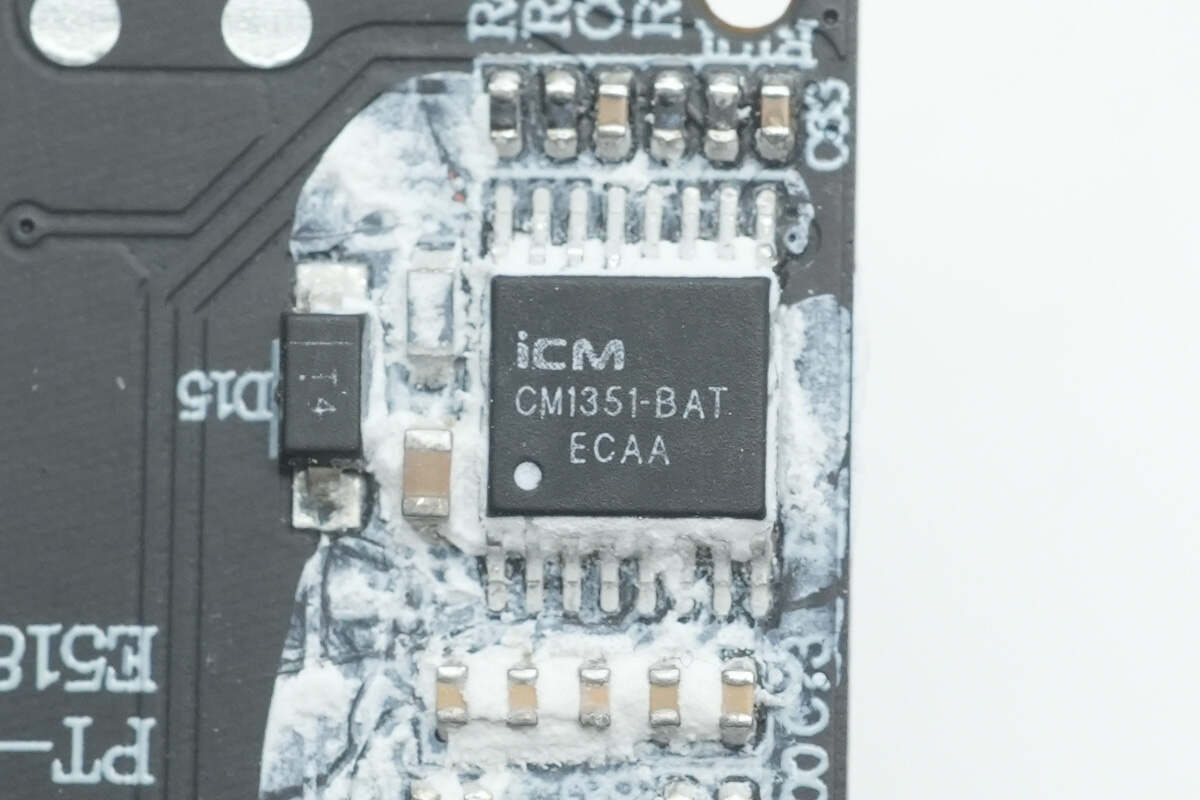
The battery protection chip used is the iCM CM1351-BAT, a dedicated protection IC for 5-cell lithium-ion or LiFePO₄ battery packs. It integrates high-precision voltage and current detection circuits. By monitoring individual cell voltages, charge/discharge currents, and temperature, it provides protection functions, including overcharge, overdischarge, cell balancing, open wire detection, low-voltage charge inhibition, discharge overcurrent protection, short circuit protection, charge overcurrent protection, and overtemperature protection. The discharge overcurrent delay is adjustable via an external capacitor, while other protection delays are built in. The chip also features integrated cell balancing functionality.
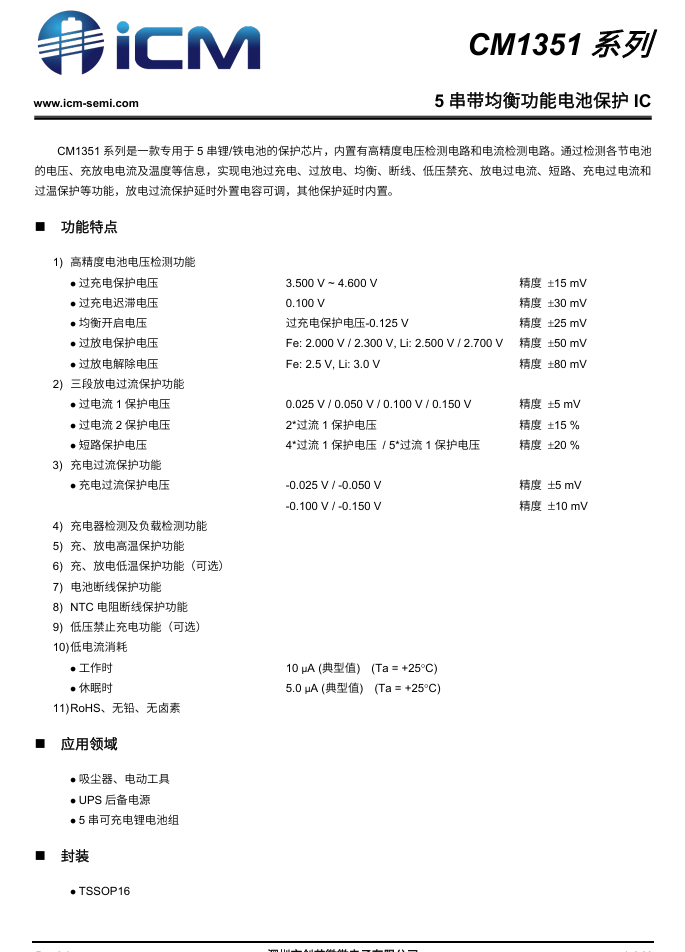
The iCM CM1351 offers a battery overcharge protection accuracy of 15 mV, supports three-level discharge overcurrent protection, and includes charge overcurrent protection. It also features open-wire protection for individual battery cells and NTC thermistor disconnection protection, providing comprehensive protection for multi-cell lithium battery packs.
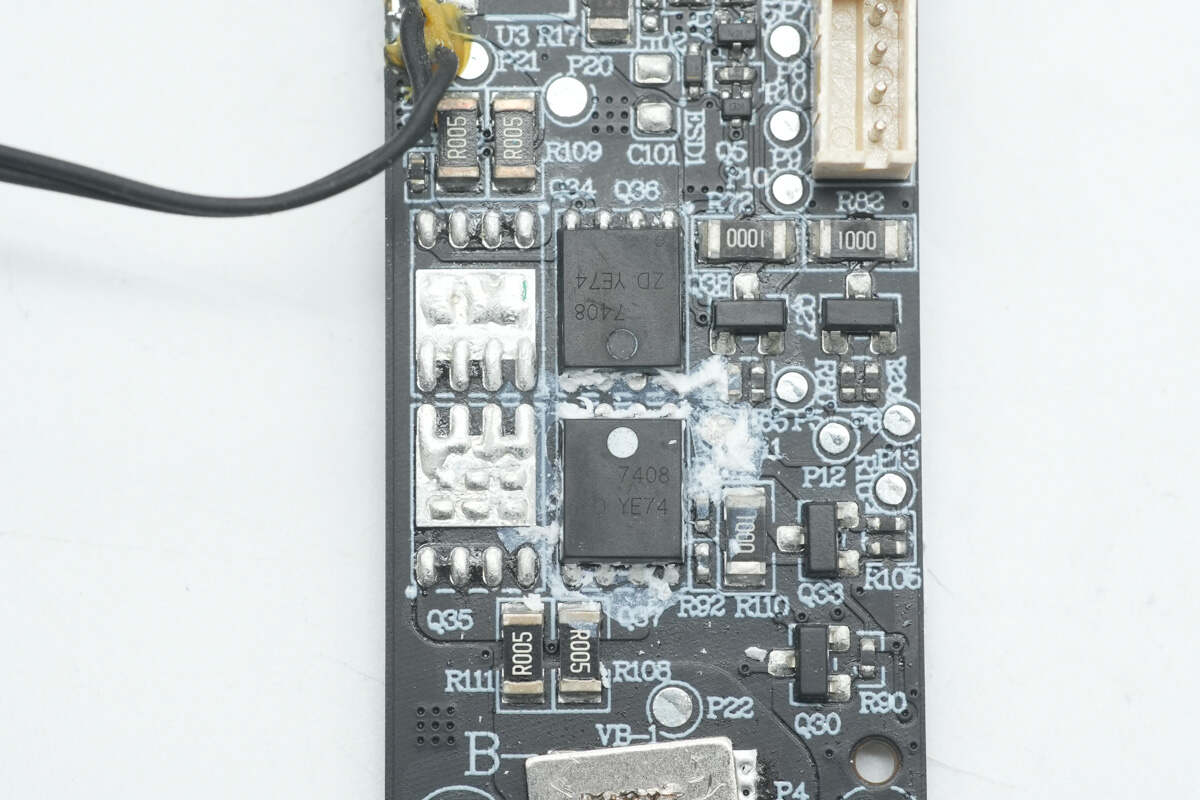
The battery protection MOSFETs are marked “7408” and use a DFN5×6 package.
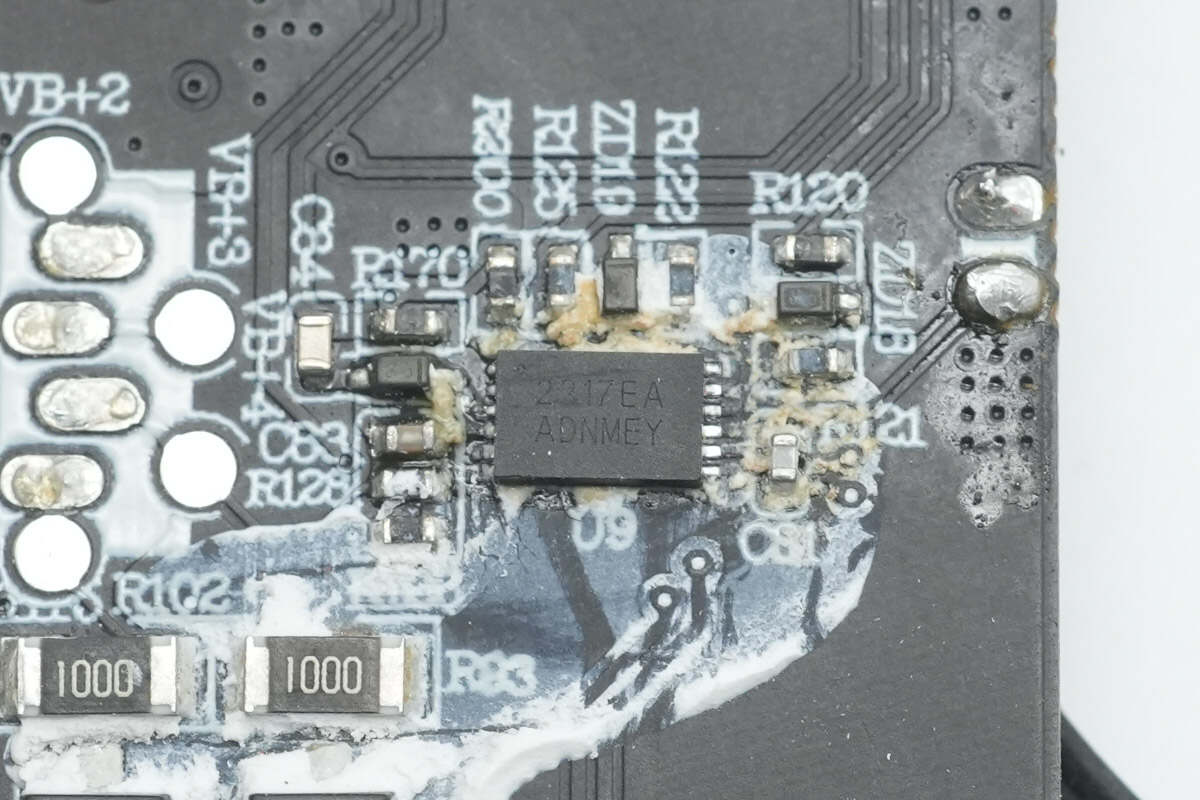
The battery fuel gauge chip is the CW2217EAAD from Cellwise, an ultra-compact solution designed for lithium-ion batteries in wearable and portable devices. It can be integrated on the system side or within the battery pack. Using advanced algorithms, it accurately estimates the state of charge (SOC) across various lithium chemistries, including LiCoOₓ, lithium polymer, and LiMnOₓ. The chip comes in a lead-free DFN-12 package.
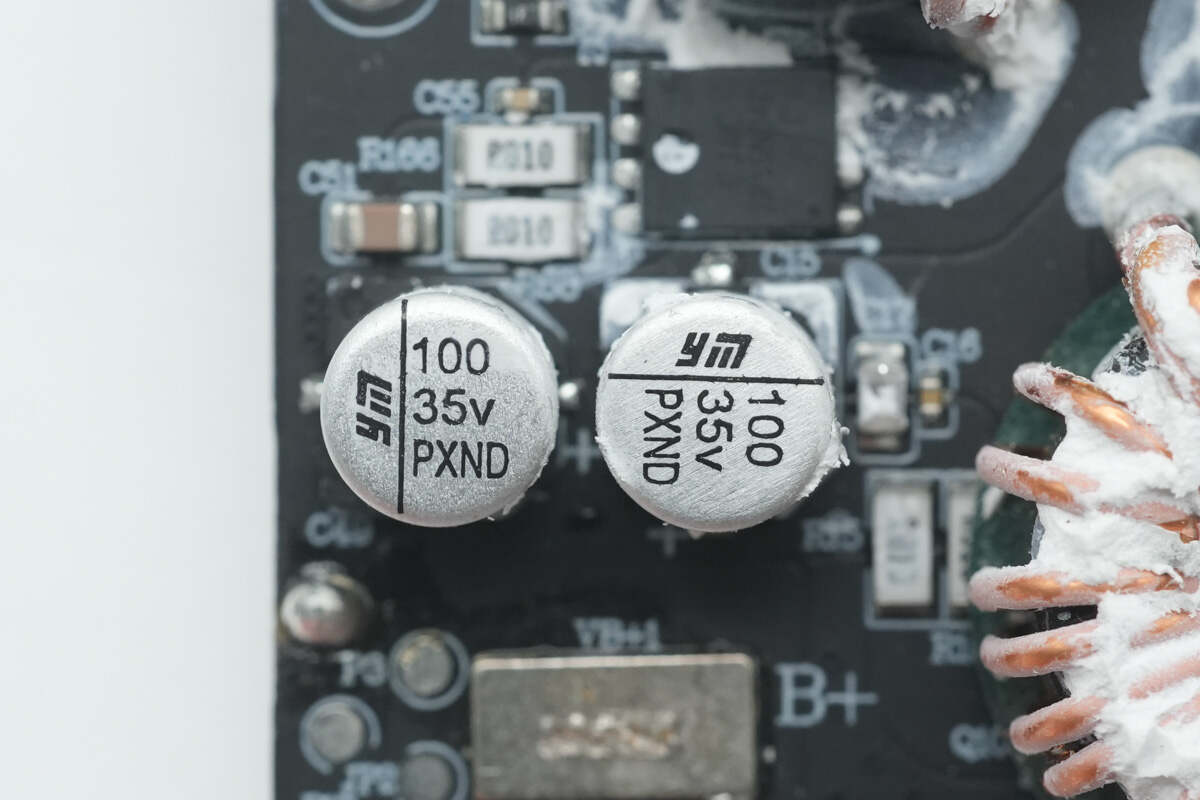
The solid capacitors on the battery side are from YMIN, each rated at 35V 100μF.
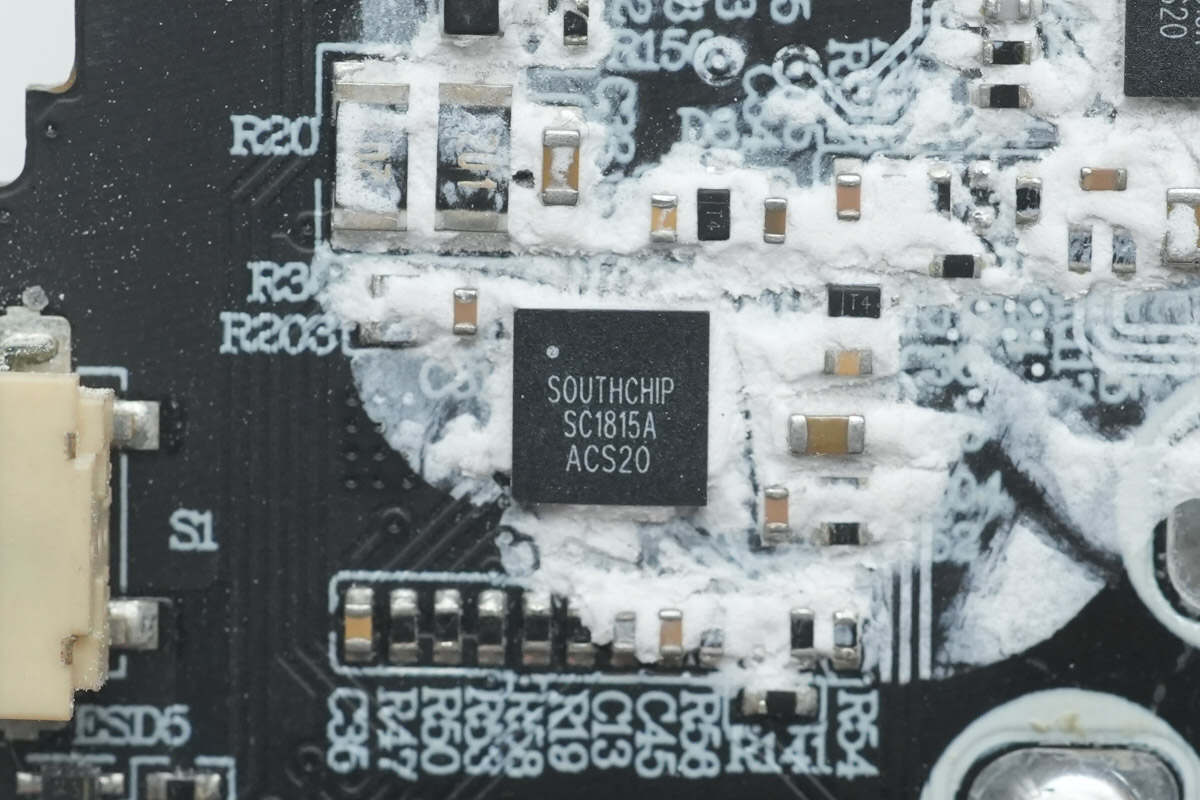
The synchronous buck-boost controller is the SC1815A from SouthChip, housed in a QFN32 package.

The buck-boost inductor is insulated at the base with fish paper.
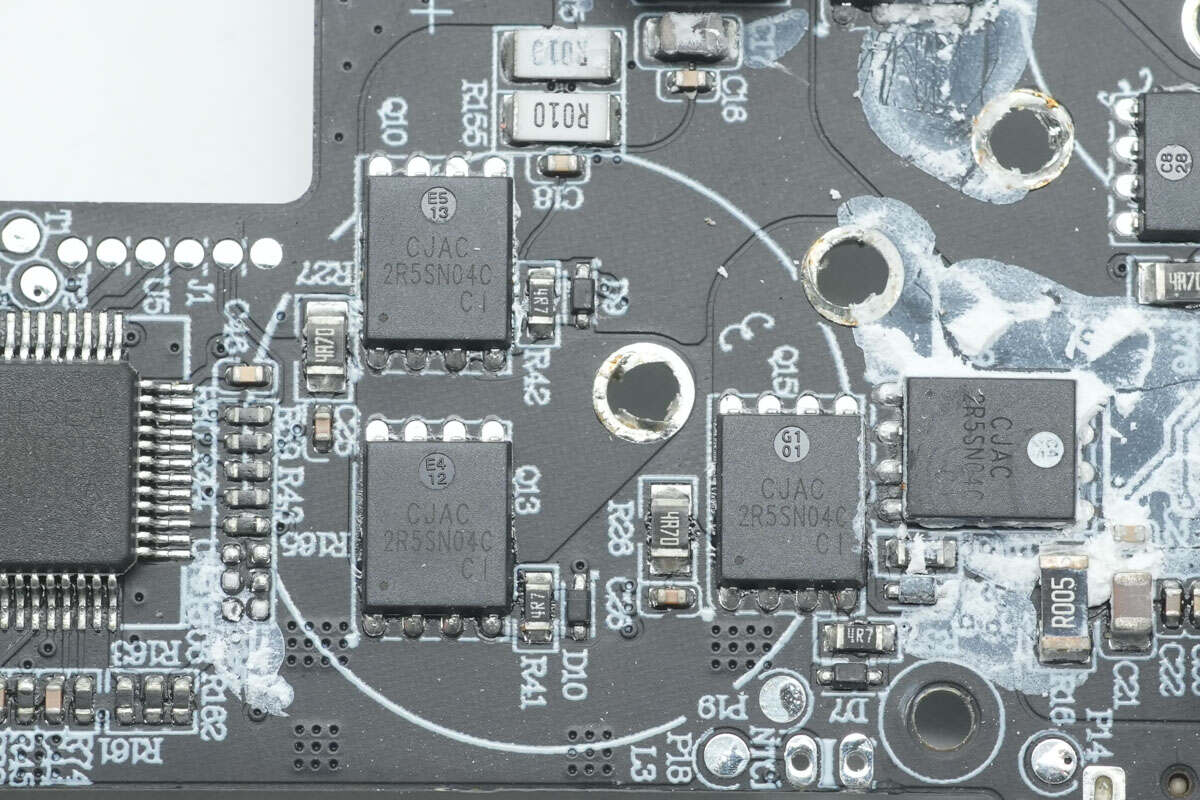
After removing the inductor, four synchronous buck-boost MOSFETs from JSCJ are revealed underneath. The model is CJAC2R5SN04C, an N-channel MOSFET rated for 40V with a low Rds(on) of 2mΩ. They are housed in a PDFNWB5×6-8L package.
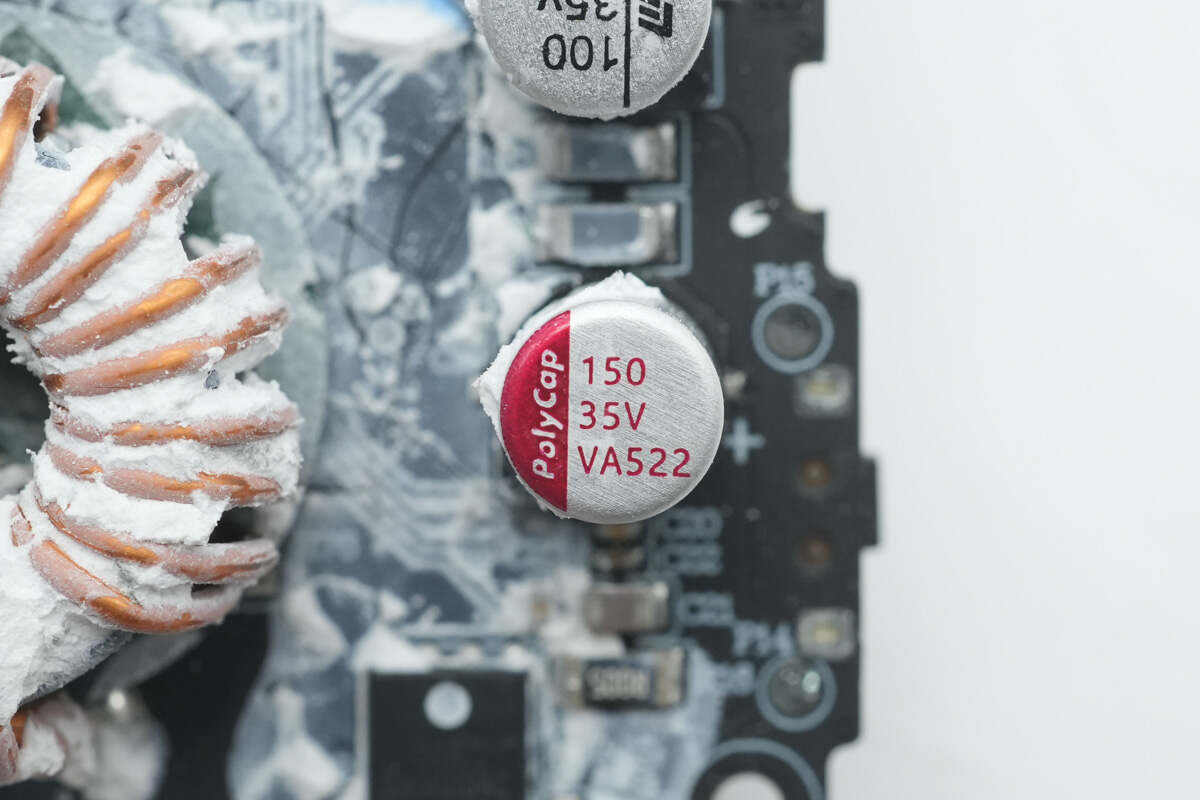
This solid capacitor is from PolyCap, rated at 35V 150μF.
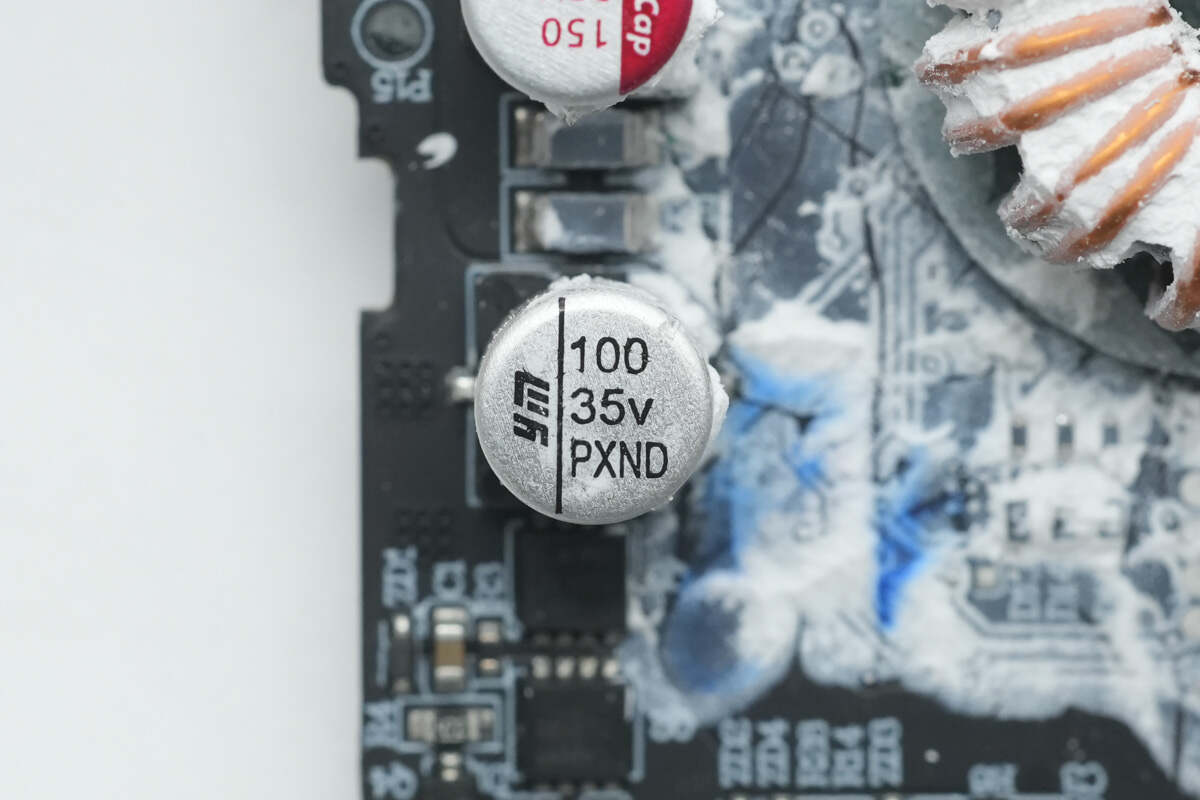
Another capacitor is from YMIN, rated at 35V 100μF.

The other buck-boost circuit also uses the SouthChip SC1815A synchronous buck-boost controller.

The buck-boost inductor paired with it also has fish paper insulation underneath.
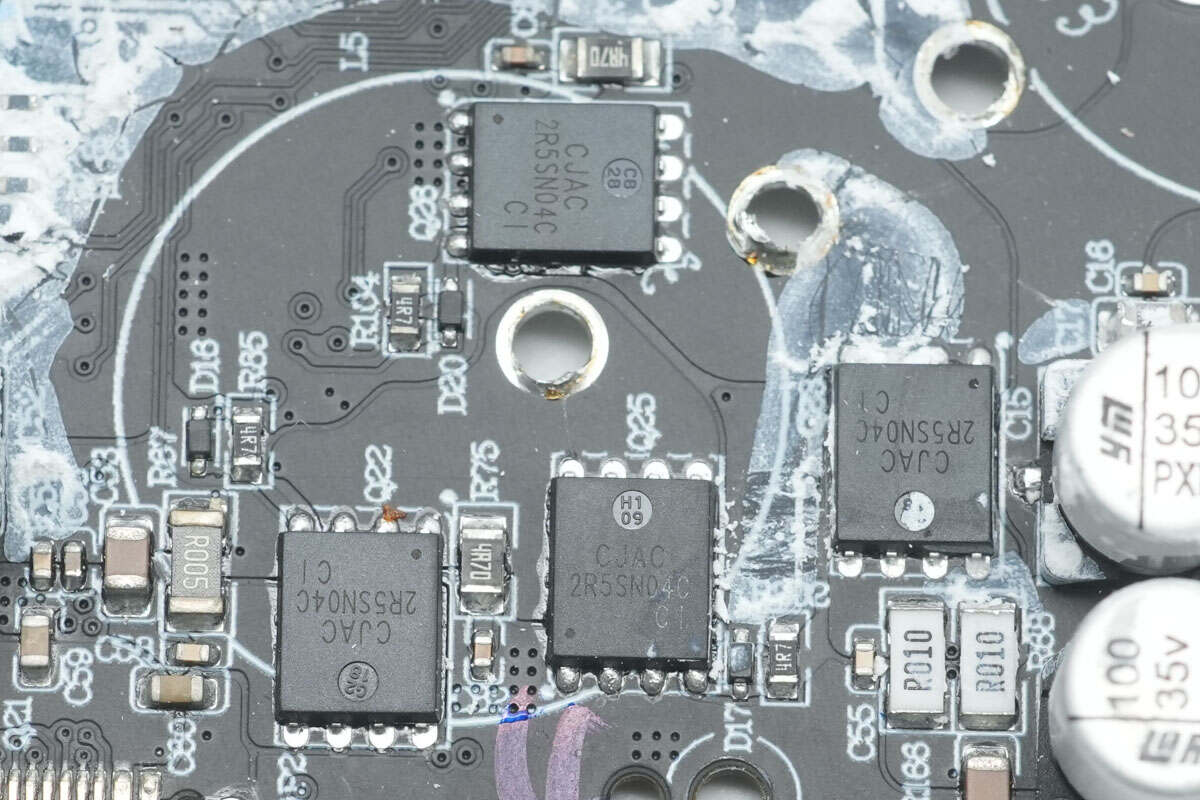
The four synchronous buck-boost MOSFETs are also JSCJ CJAC2R5SN04C models.
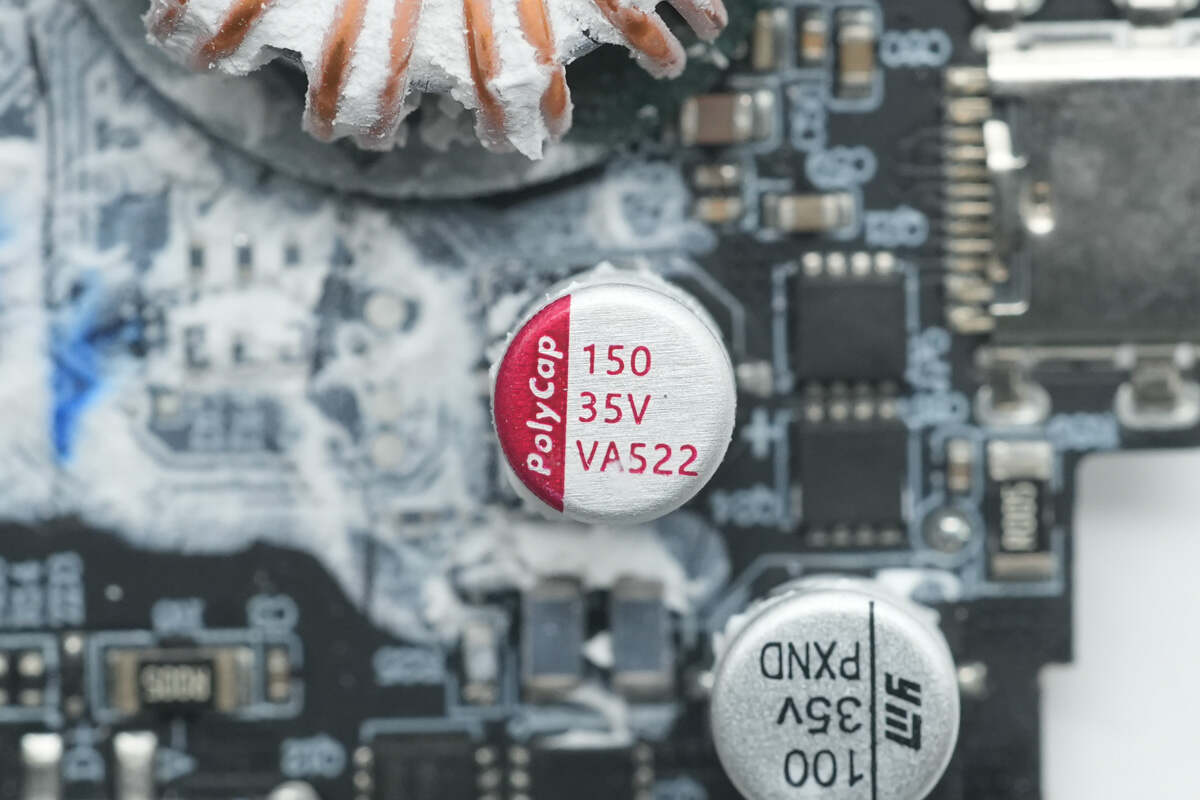
This solid capacitor is from PolyCap, rated at 35V 150μF.
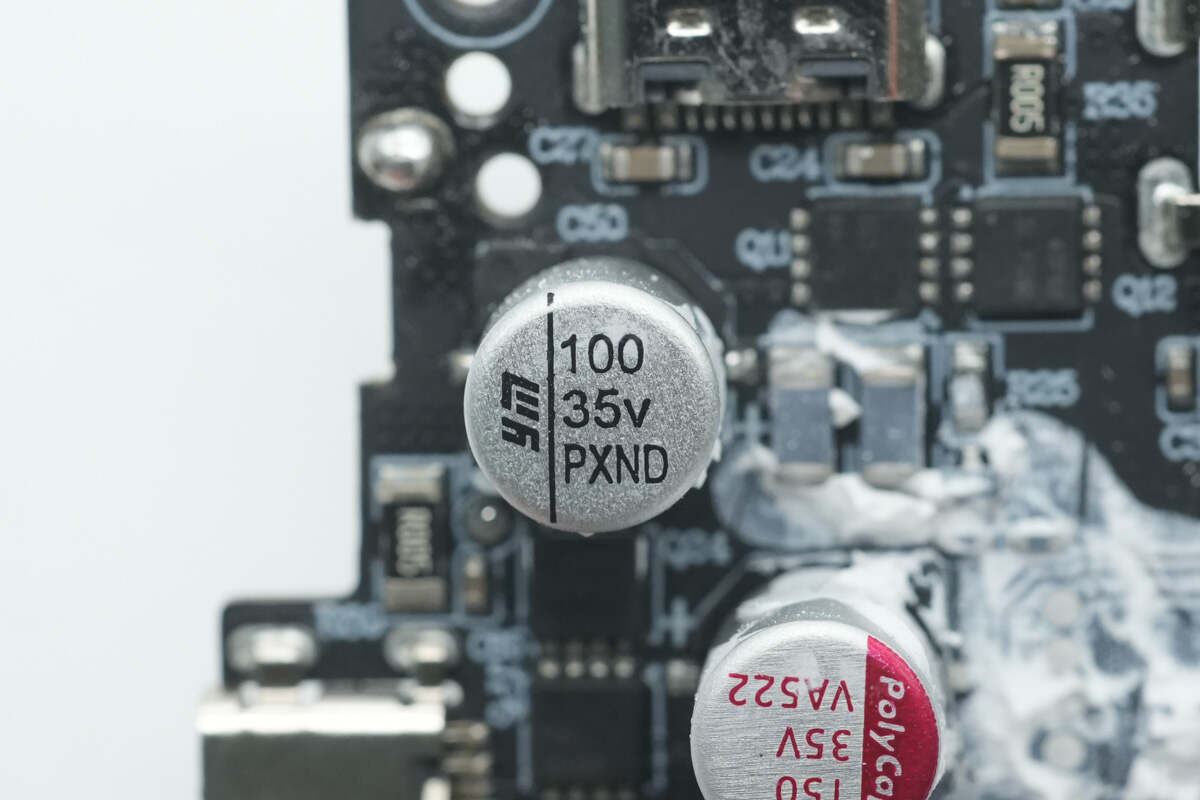
Another capacitor is from YMIN, rated at 35V 100μF.

The protocol chip is the Chipsea CPW3221, a USB Type-C and USB PD controller designed for power banks, BMS, wireless charging, and display applications. It integrates all Type-C CC and USB PD functions, USB BC1.2 support, and multiple fast charging protocols to enhance compatibility with various devices.
The CPW3221 series features a built-in 32-bit microprocessor running at 48MHz, suitable for a wide range of industrial control and high-performance applications. It includes 128KB program flash, 24KB SRAM, and peripherals such as I/O ports, timers, USART, I2C, ADC, and watchdog timer, enabling versatile use. Available in QFN32 and QFN48 packages.

The VBUS MOSFETs for the USB-C1 port are marked with “40P68.”
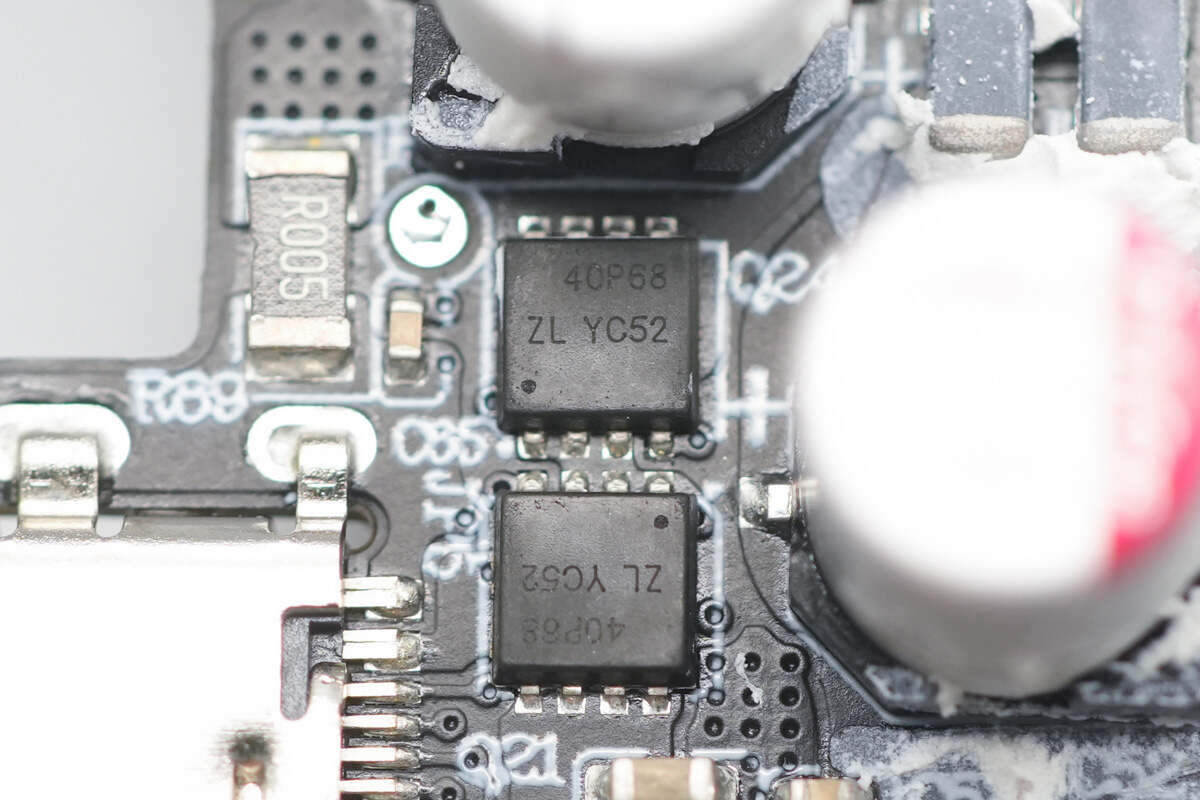
The VBUS MOSFETs for the USB-C2 port are the same.
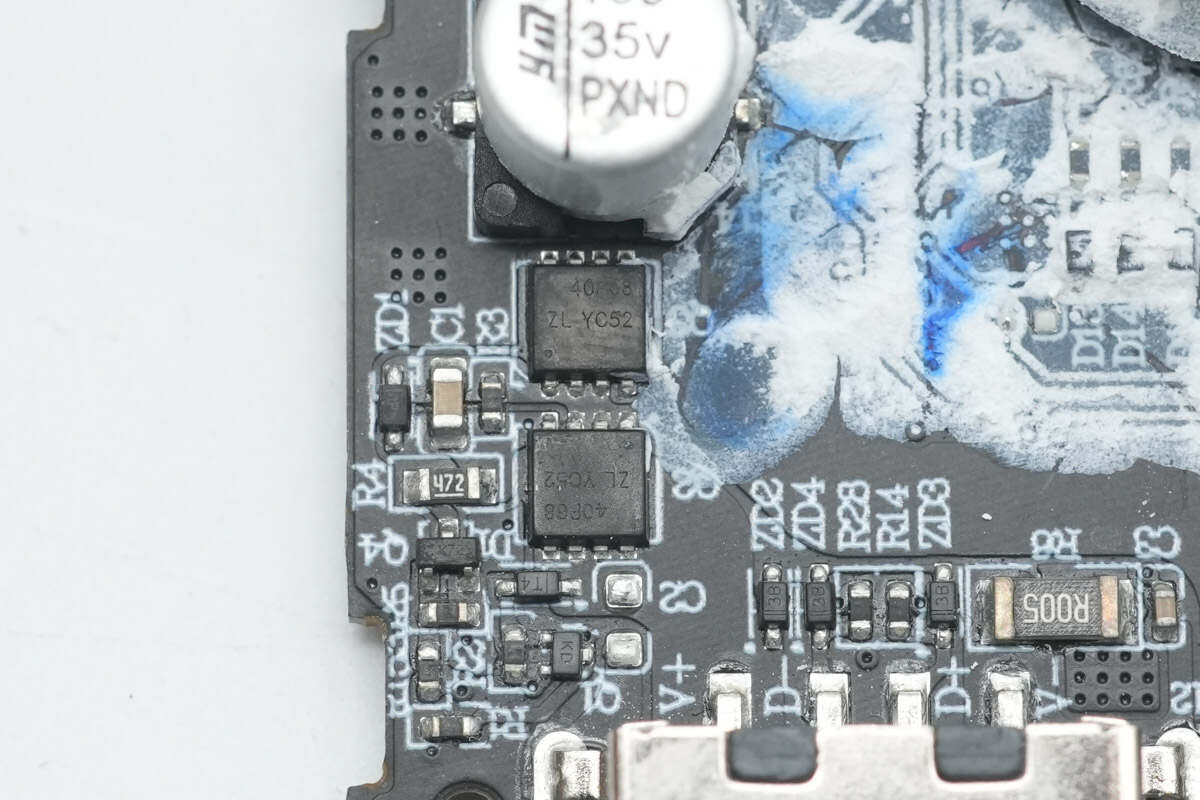
The USB-A port’s VBUS MOSFETs are also marked with “40P68.”
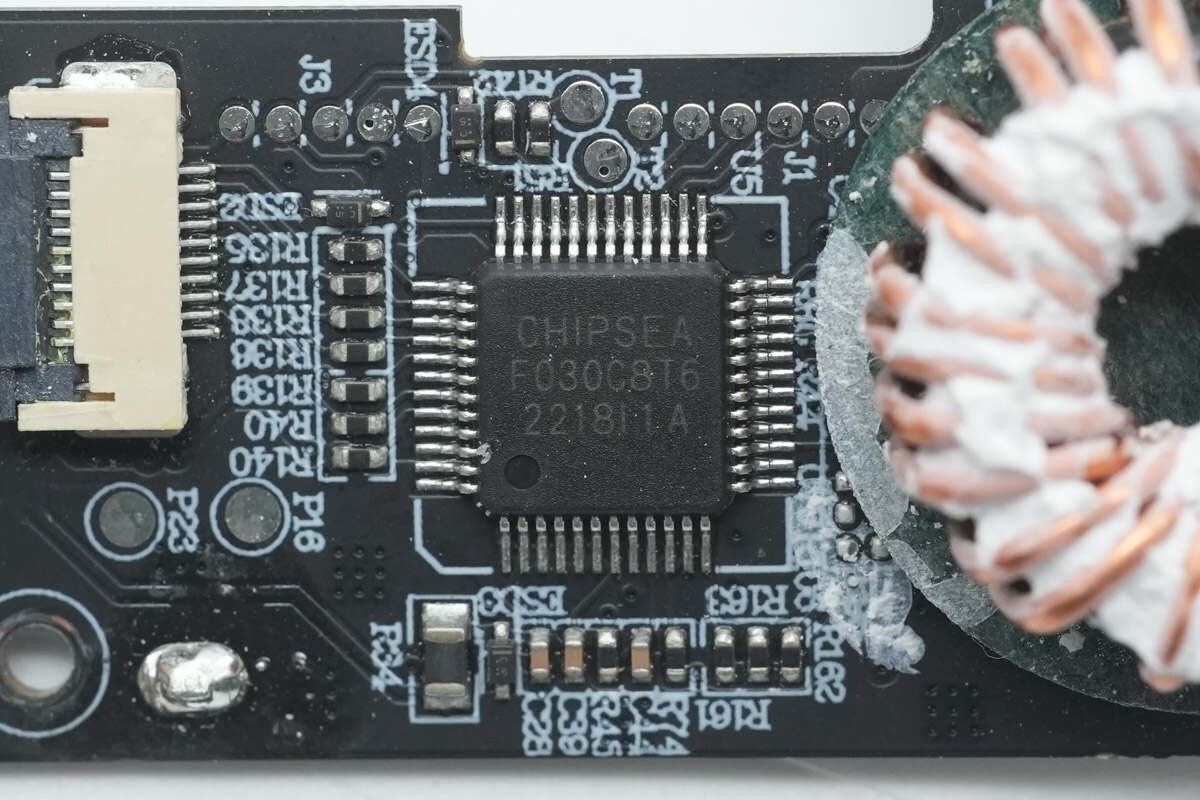
The MCU is a Chipsea CS32F030C8T6, featuring a 48MHz ARM Cortex-M0 CPU, 64KB flash memory, and 8KB SRAM. It includes two UART, two SPI, and two I2C interfaces, housed in an LQFP48 package.
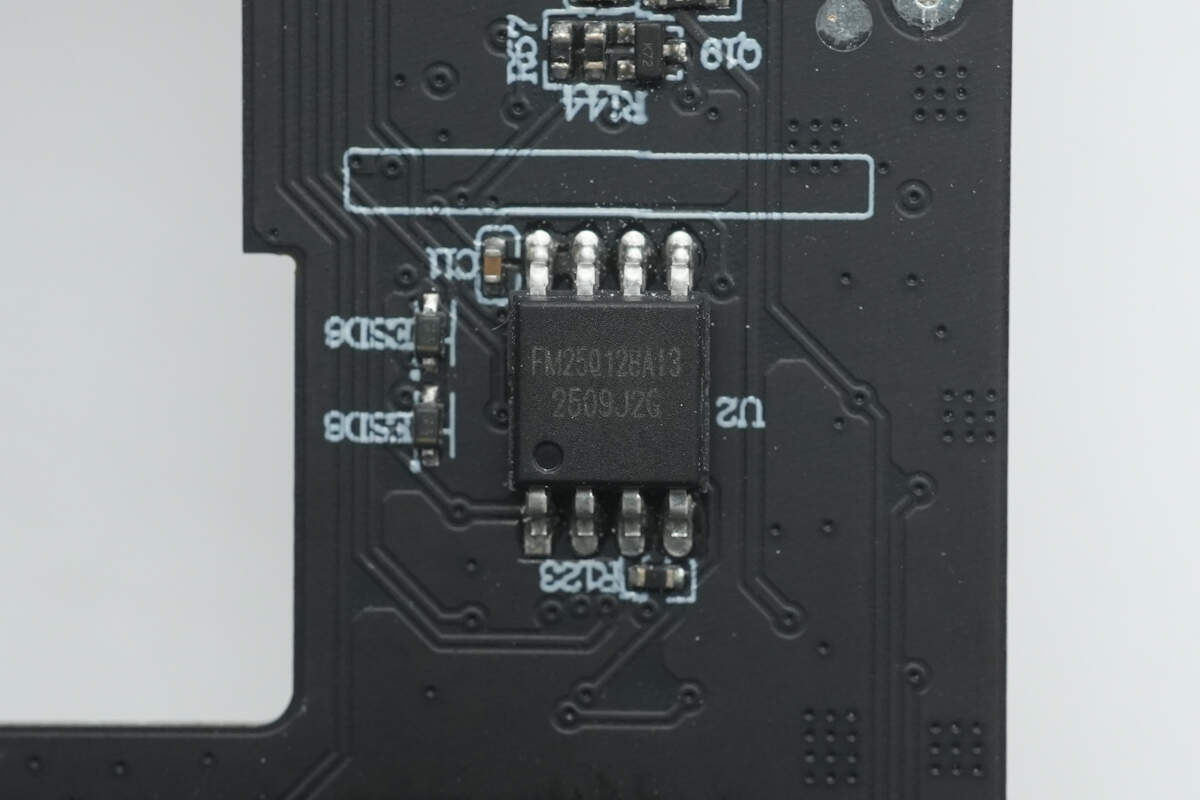
The external memory is a FUDAN FM25Q128AI3, a 16MB serial flash chip with a wide operating voltage range. It supports standard SPI, dual/quad I/O, and quad peripheral interface (QPI) with dual clock cycles. The chip comes in an SOP8 package.

The synchronous buck converter powering the MCU and display is a Texas Instruments LMR14010A, marked “1N72.” It is a PWM DC-DC step-down regulator with a wide input range of 4–40V and an ultra-low shutdown current of 1µA to extend battery life. Operating at a fixed 0.7MHz frequency, it enables the use of small external components while minimizing output ripple voltage. It comes in a compact TSOT-6L package and is suitable for various industrial and automotive applications.

Here is a close-up of the accompanying buck inductor.
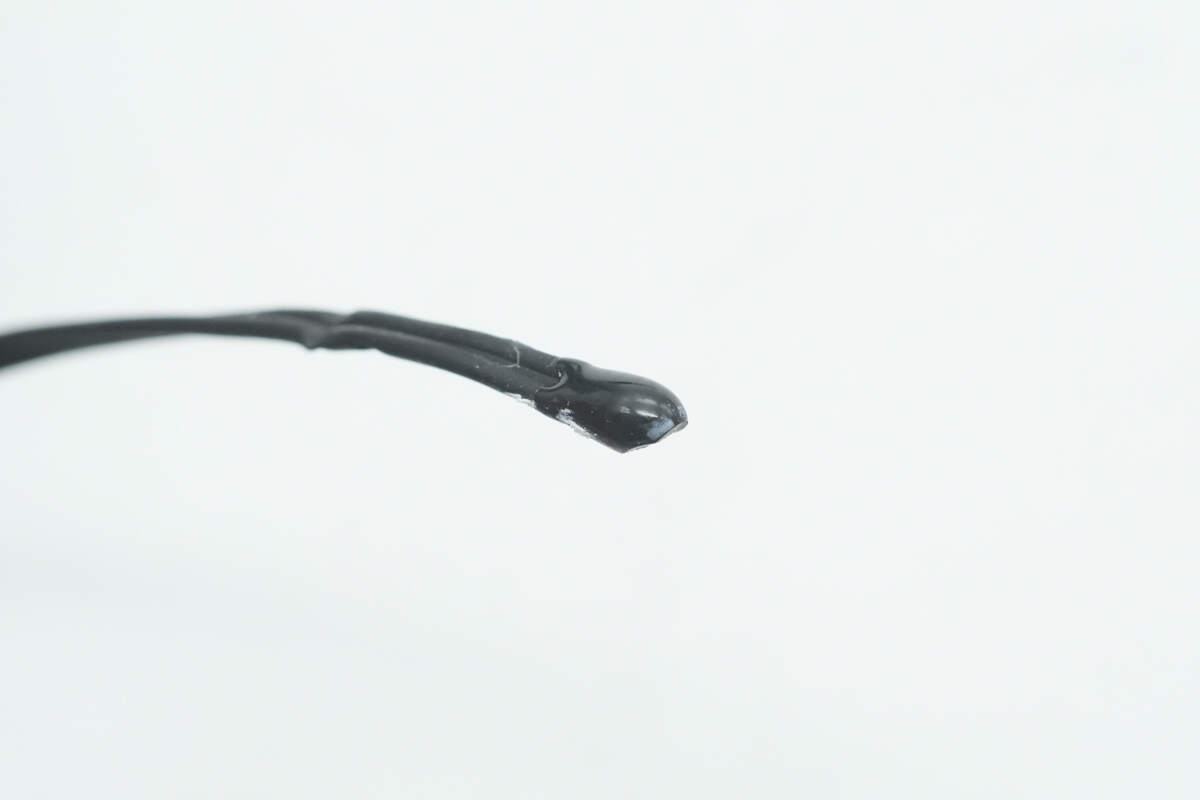
Close-up of the thermistor.
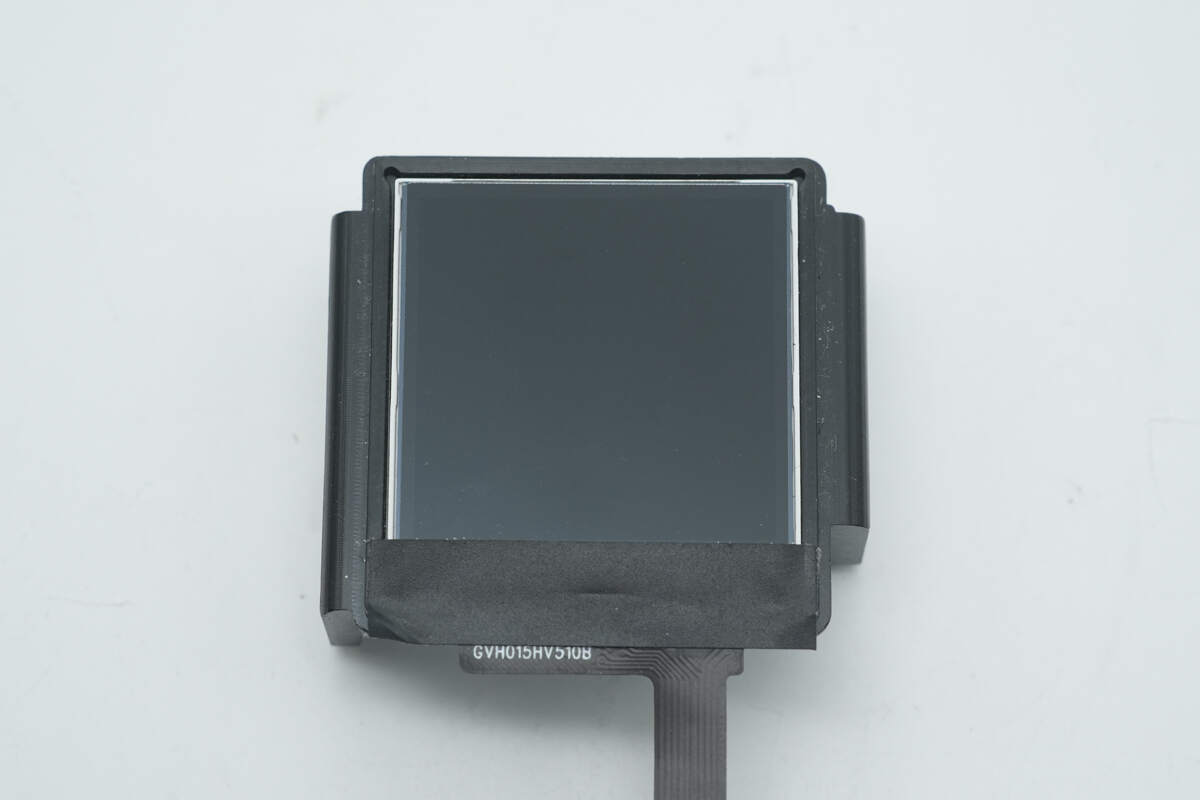
The display is supported and protected by a plastic housing.
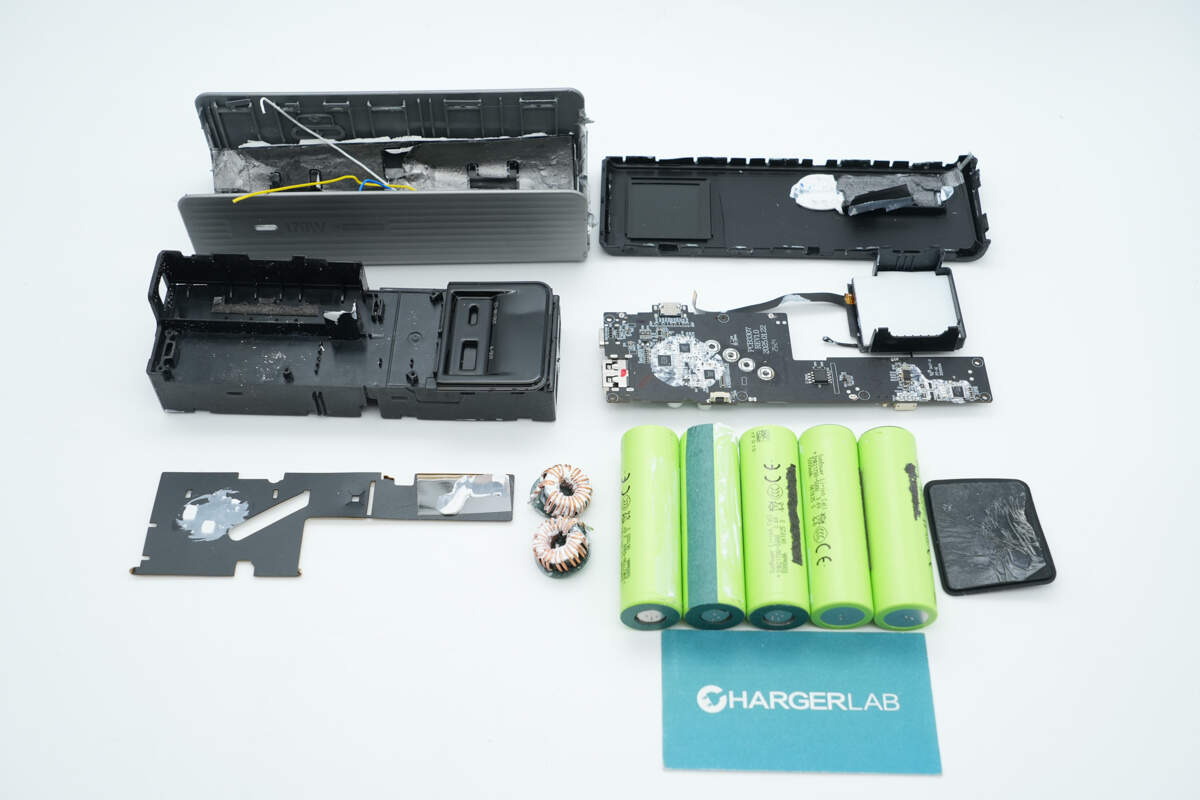
Well, those are all components of the EcoFlow RAPID 170W 25000mAh Power Bank.
Summary of ChargerLAB

Here is the component list of the EcoFlow RAPID 170W 25000mAh Power Bank for your convenience.
It features a sleek design and a 16-bit color depth TFT display that supports dynamic emojis, battery level, port usage, and real-time power feedback, offering an excellent interactive experience. Both USB-C ports support 140W bi-directional fast charging, while the USB-A port provides 33W output, delivering a total combined output power of 170W.
After taking it apart, we found that the battery pack consists of five SunPower INR21700-5000 lithium cells and is equipped with the iCM CM1351-BAT battery protection chip along with thermistors for temperature monitoring. The 25,000mAh capacity delivers robust endurance while ensuring safety and reliability.
It uses SouthChip SC1815A synchronous buck-boost controllers paired with the Chipsea CPW3221 protocol chip to manage fast charging for two USB-C and one USB-A port. A Chipsea MCU combined with FUDAN memory supports the rich display features, while a Texas Instruments buck converter handles the power supply. The enclosure is lined with graphite sheets, and components and battery cells are reinforced with adhesive, reflecting reliable build quality.
Related Articles:
1. Teardown of MEAN WELL 1500W Switching Power Supply (SE-1500-24)
2. Teardown of BricBloc 67W All-in-One Charger
3. Teardown of EcoFlow RAPID 170W 25,000mAh Power Bank with Built-in Cable (EF-HB-001)

